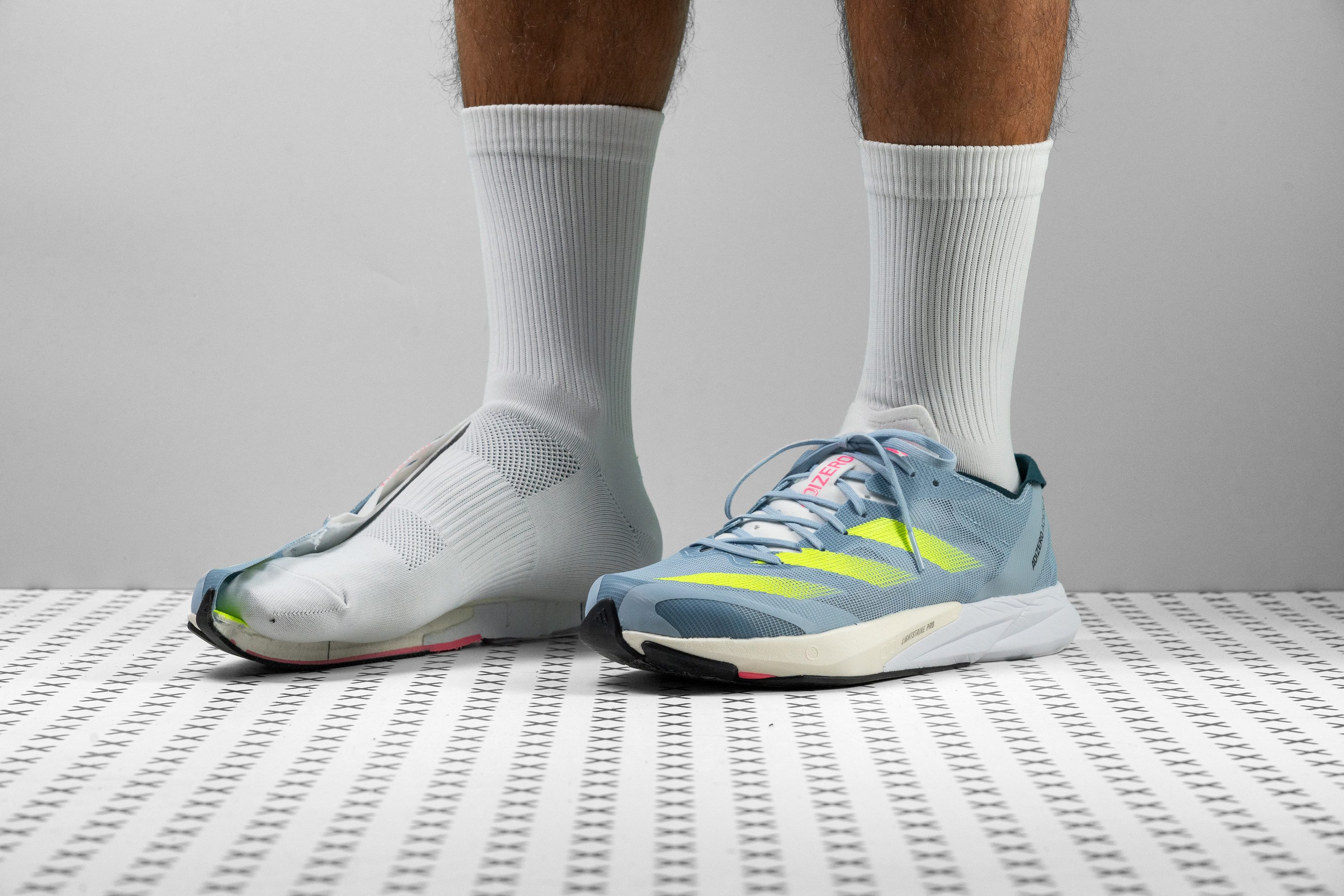Our verdict
- Top pick in best running shoes with a wide toebox (2023)
Pros
- Extremely breathable
- Snappy and speedy ride
- Suitable for tempo runs and long distances
- Fits wider feet
- Secure lockdown
- Grippy and durable outsole
- Budget friendly for a race-ready shoe at $130
- Ideal for forefoot strikers
Cons
- Could be lighter
- Not for harsh winter days
- Noisy
Audience verdict
- Top 22% in road running shoes
- Top 22% in neutral running shoes
Comparison
The most similar running shoes compared
+ + Add a shoe | |||||
|---|---|---|---|---|---|
| Audience score | 89 Great! | 92 Superb! | 90 Superb! | 87 Great! | |
| Price | £120 | £120 | £110 | £145 | |
| Pace | Tempo | CompetitionTempo | Daily runningTempo | Tempo | |
| Shock absorption | Moderate | Moderate | High | Moderate | |
| Energy return | Moderate | High | Moderate | High | |
| Traction | High | High | High | Moderate | |
| Arch support | Neutral | Neutral | Neutral | Neutral | |
| Weight lab Weight brand | 7.4 oz / 210g 7 oz / 198g | 6.2 oz / 176g 6.2 oz / 176g | 8.6 oz / 245g 8.4 oz / 238g | 6 oz / 171g 6 oz / 171g | |
| Lightweight | ✓ | ✓ | ✓ | ✓ | |
| Drop lab Drop brand | 7.6 mm 8.0 mm | 6.2 mm 7.0 mm | 8.2 mm 9.0 mm | 6.3 mm 6.0 mm | |
| Strike pattern | Mid/forefoot | Mid/forefoot | HeelMid/forefoot | Mid/forefoot | |
| Size | True to size | Slightly small | Half size small | True to size | |
| Midsole softness | Soft | Soft | Balanced | Soft | |
| Difference in midsole softness in cold | Small | Small | Small | Small | |
| Toebox durability | Bad | Bad | Bad | - | |
| Heel padding durability | Decent | Good | Good | - | |
| Outsole durability | Good | Good | Decent | - | |
| Breathability | Breathable | Warm | Breathable | Breathable | |
| Width / fit | Medium | Medium | Wide | Narrow | |
| Toebox width | Wide | Narrow | Medium | Medium | |
| Stiffness | Flexible | Flexible | Moderate | Flexible | |
| Torsional rigidity | Flexible | Flexible | Moderate | Flexible | |
| Heel counter stiffness | Flexible | Flexible | Flexible | Flexible | |
| Rocker | ✗ | ✗ | ✗ | ✓ | |
| Heel lab Heel brand | 28.0 mm 28.0 mm | 25.0 mm 28.0 mm | 34.9 mm 35.0 mm | 31.7 mm 32.0 mm | |
| Forefoot lab Forefoot brand | 20.4 mm 20.0 mm | 18.8 mm 21.0 mm | 26.7 mm 26.0 mm | 25.4 mm 26.0 mm | |
| Widths available | Normal | Normal | NormalWide | Normal | |
| Orthotic friendly | ✓ | ✓ | ✓ | ✓ | |
| Season | SummerAll seasons | All seasons | SummerAll seasons | SummerAll seasons | |
| Removable insole | ✓ | ✓ | ✓ | ✓ | |
| Ranking | #139 Top 21% | #8 Top 3% | #47 Top 13% | #152 Top 40% | |
| Popularity | #593 Bottom 13% | #273 Bottom 28% | #180 Top 47% | #220 Bottom 42% |
Who should buy
We recommend the Adios 8 as a great choice for runners who:
- Want to go fast but don’t enjoy the rigidity of carbon-plated shoes
- Prefer more ground-feel underfoot with a lower stack and cushioning that feels balanced
- Want a race-ready shoe that won't break the bank
- Go out for runs in the summertime or in hot climates
- Have a wider foot
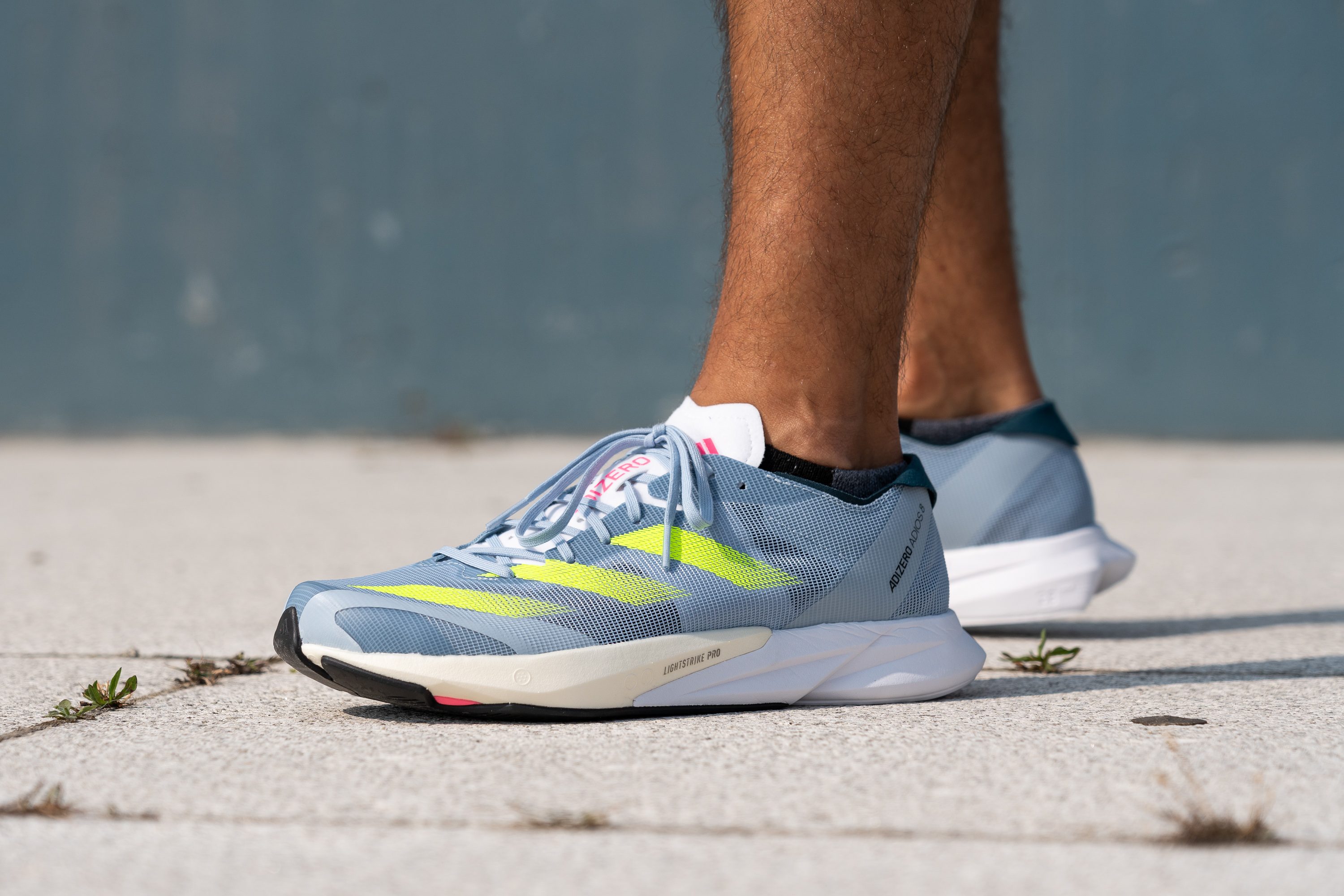
Who should NOT buy
The more traditional sensation of the Adios 8’s midsole cushion means that we don’t get the assistance or cruising capabilities of modern midsoles. For a speedy shoe that uses more technology underfoot that helps to shoulder the burden of high-pace running, we recommend the Saucony Endorphin Speed 3.
While the cushioning at the heel is quite soft, heel-striking or long-distance runners will be better served with more foam underfoot and a slightly higher heel drop. We suggest the Saucony Endorphin Speed 3 or the Asics Metaspeed Sky+ as good alternatives that took us the distance quickly and comfortably.
The Adios 8 features a plastic torsion shank embedded in the midsole for added stability, though this does not provide adequate support for runners with a pronating stride. Consider the Brooks Launch GTS 10 instead as a fast shoe integrated with appropriate stability features.
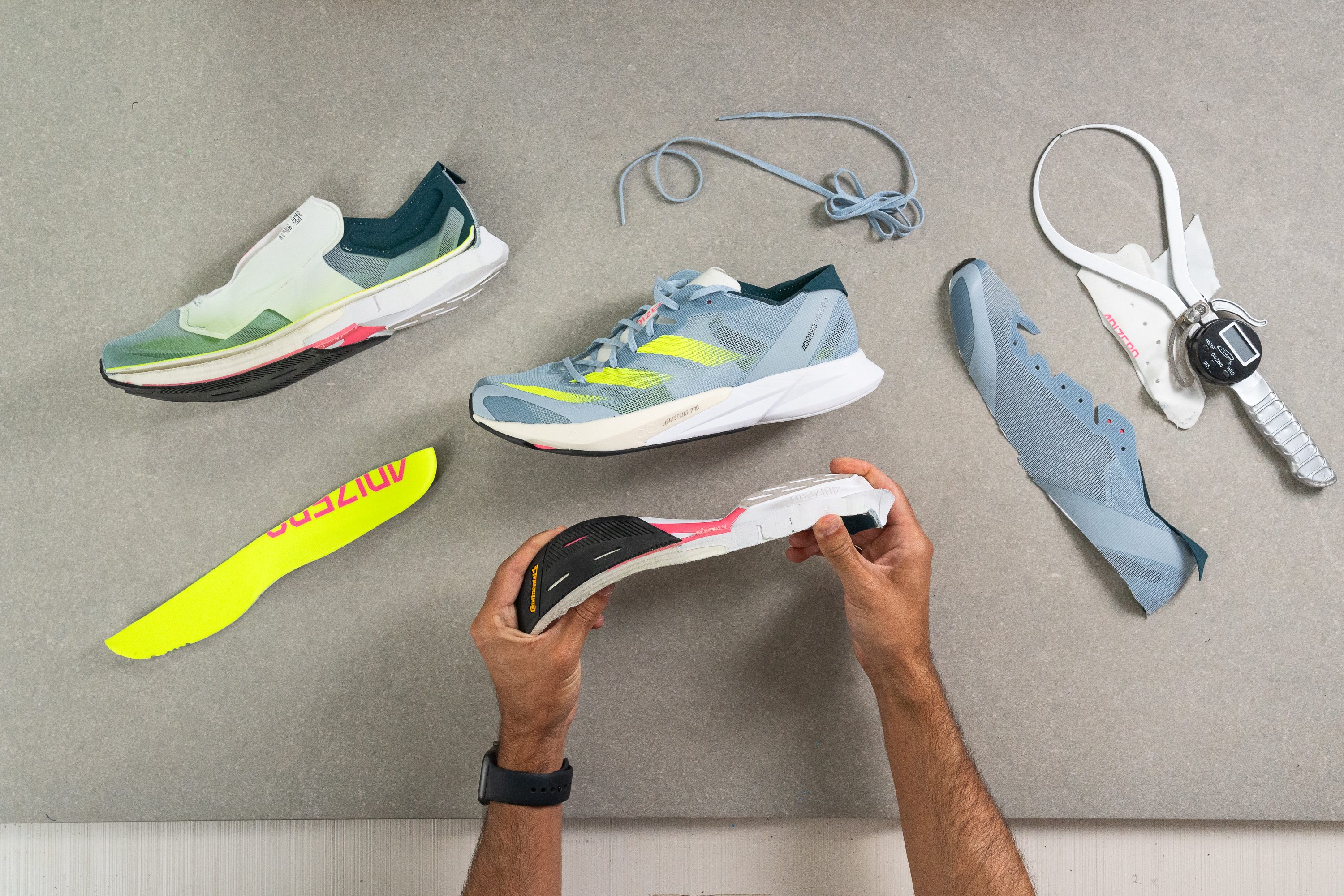
Cushioning
Shock absorption
The Adios 8 delivers just average shock absorption with 126 SA, and we believe that’s actually a good thing. This line was always designed for runners who crave ground feel and a fast-responding ride, something you simply won’t get in a shoe with ultra-high cushioning scores.
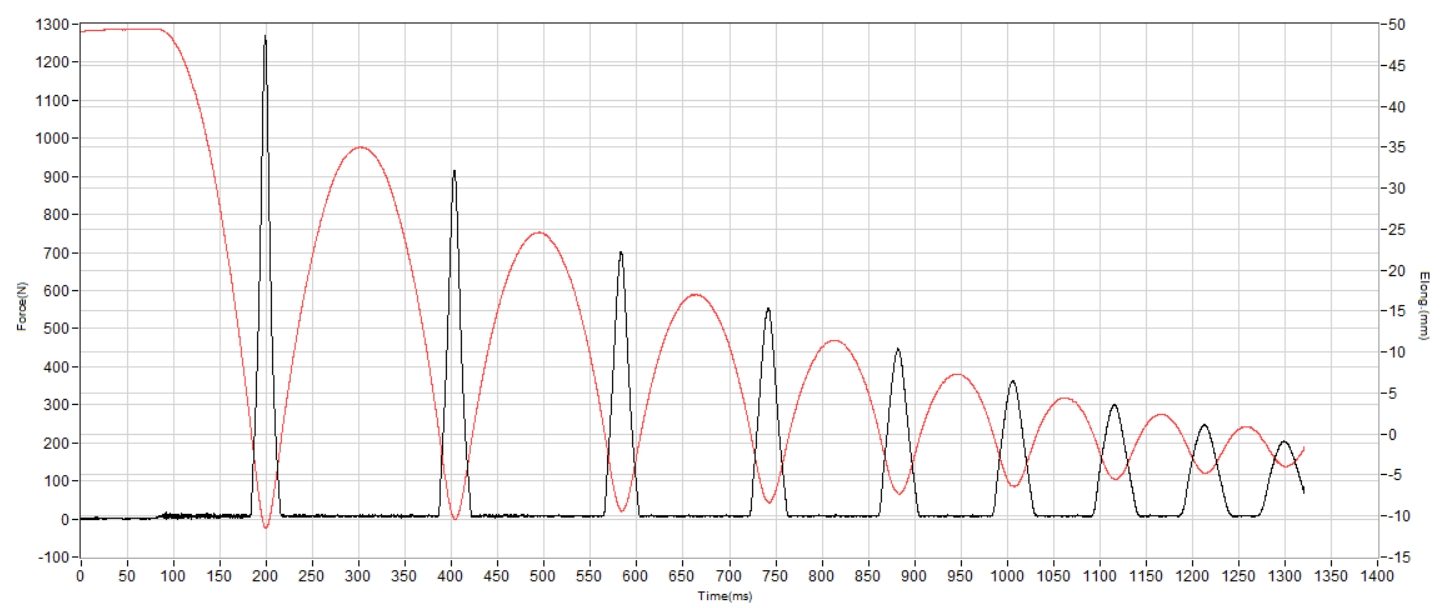
| Adizero Adios 8 | 126 SA |
| Average | 130 SA |
Energy return
The Adios 8 scores just 61.2% energy return in the heel in our lab test, and that's far too low for a truly responsive tempo trainer. But here’s the catch: this shoe combines two different foams.
The heel uses standard Lightstrike, while the forefoot packs the first-class Lightstrike Pro. That makes a huge difference. Up front, the shoe delivers an impressive 74.6% energy return, giving it the snappy toe-off needed for faster efforts.
| Adizero Adios 8 | 61.2% |
| Average | 58.6% |
Heel stack
Measuring 28 mm according to our caliper, the Adios 8's stack at the heel is quite a bit shorter than our current lab average. This means that while the midsole is soft; it doesn't feel too cushy or gummy underfoot. There’s enough foam to provide good impact protection for our landings, but not so much that it feels plush or luxurious underfoot.
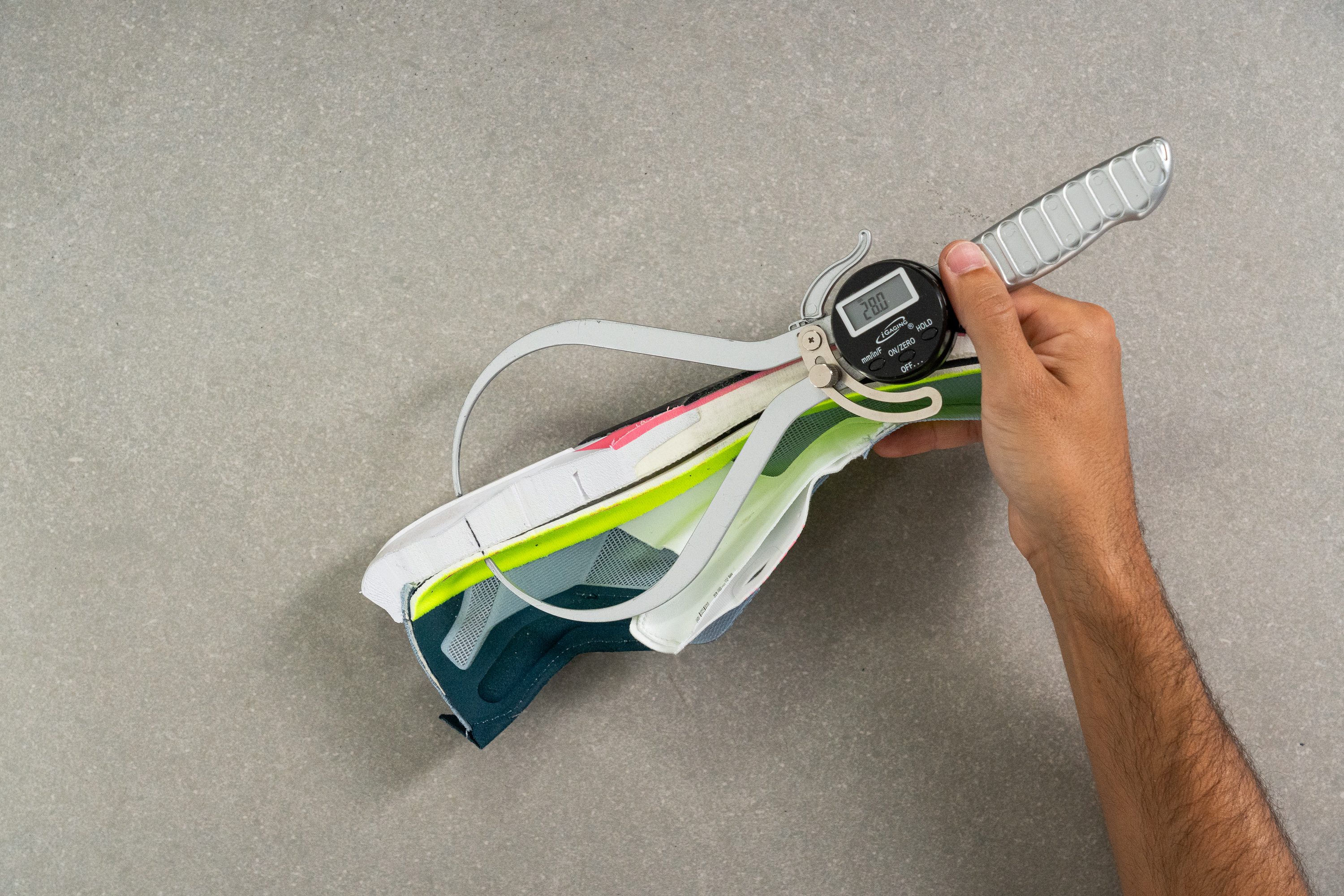
| Adizero Adios 8 | 28.0 mm |
| Average | 34.8 mm |
Forefoot stack
As with the heel, the stack is also relatively short at the forefoot, measuring only 20.4 mm according to our calliper.
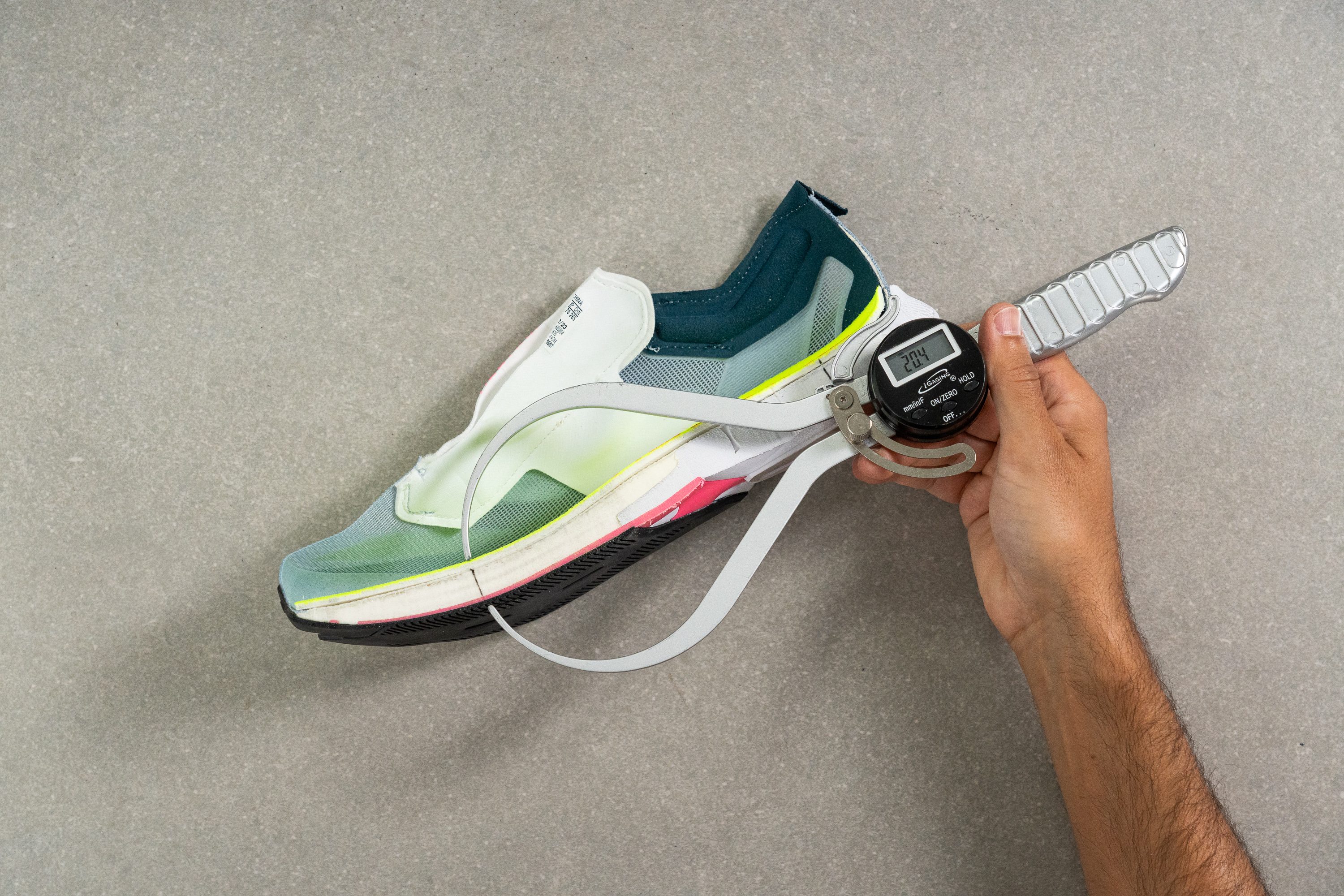
This low stack height gives us lots of ground-feel on our runs, and lends the Adios 8 a much more traditional feeling underfoot that is reminiscent of speed-trainers from back in the day. For runners who prefer a more maximal shoe but still have a need for speed, we recommend the ASICS Magic Speed 2 or the Adidas Adizero Adios Pro 3 if budget isn’t an issue.
| Adizero Adios 8 | 20.4 mm |
| Average | 26.2 mm |
Drop
These stack measurements give us a heel drop of 7.6 mm which makes the offically stated drop of 8 mm pretty accurate. This classifies the Adios 8 as a mid-drop shoe which is suitable for a wide variety of runners as it accommodates both forefoot and heel striking strides quite well.
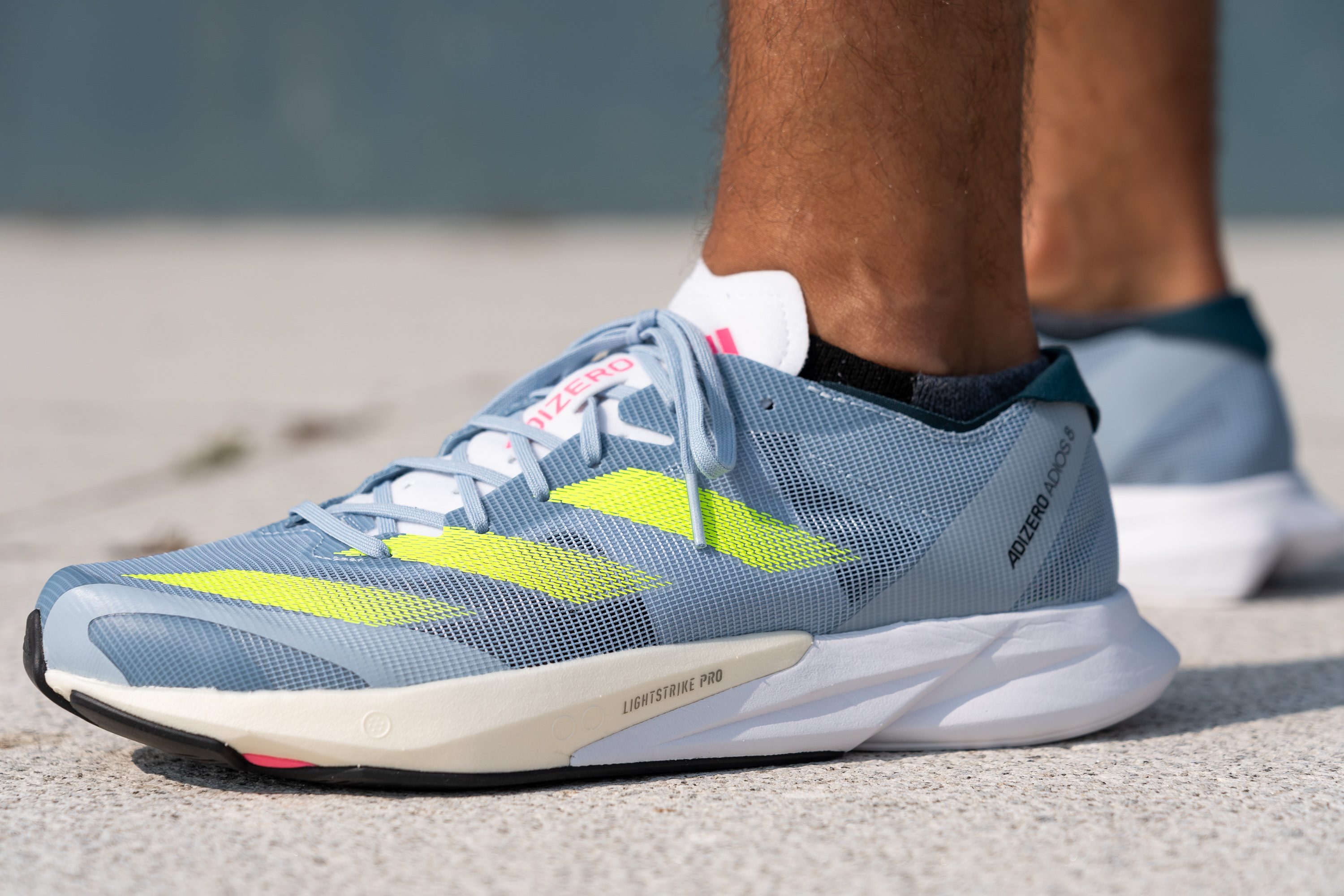
| Adizero Adios 8 | 7.6 mm |
| Average | 8.6 mm |
Midsole softness
The Adios 8 makes use of Adidas’ Lightstrike 2.0 foam which gave us a reading of 16.5 HA when we pressed our durometer against it. This is a remarkably soft reading that makes the Adios 8 46.9% softer than our lab average as of writing this review.
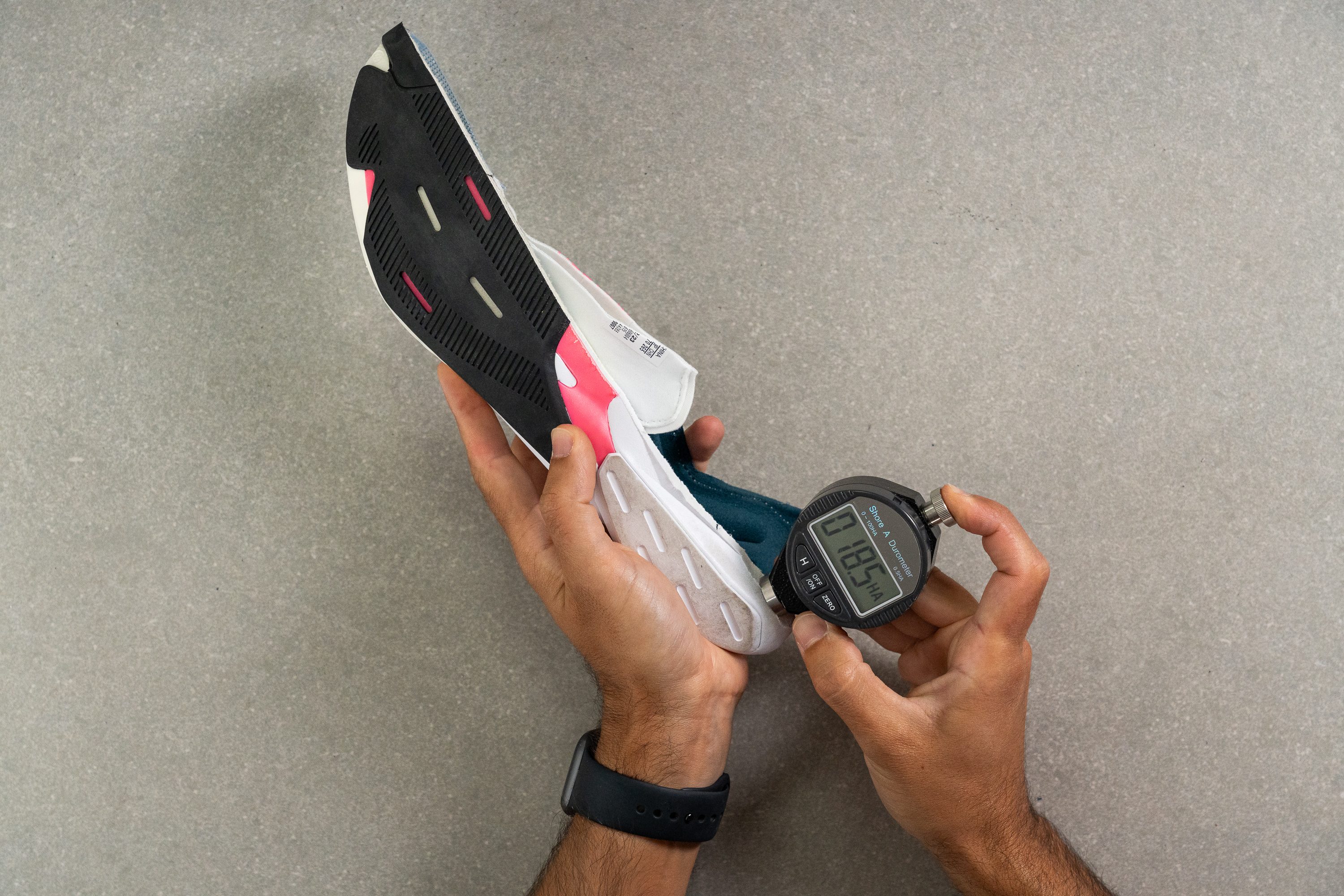
This means that, despite the short stack, the shoe feels decently cushioned at the heel. This is good for heel striking runners, as well as those longer-distance efforts where we have a tendency to plod our feet down as the miles wear on.
While the Adios 8 is perfectly capable of going the distance; we found the cushioning to be a little lacking for efforts beyond 15-miles. For a more dedicated long-distance runner that is also capable of high speeds, check out the Hoka Mach 5.
| Adizero Adios 8 | 16.5 HA |
| Average | 20.4 HA |
Secondary foam
At the forefoot, the midsole uses Adidas’ premium Lightstrike Pro foam. This section of the midsole is slightly stiffer than the heel, but only marginally so. With a reading of 18.9 HA, the forefoot is still significantly softer than the current lab average, and means that the Adios 8 gave us just as much impact protection at the forefoot as at the heel.
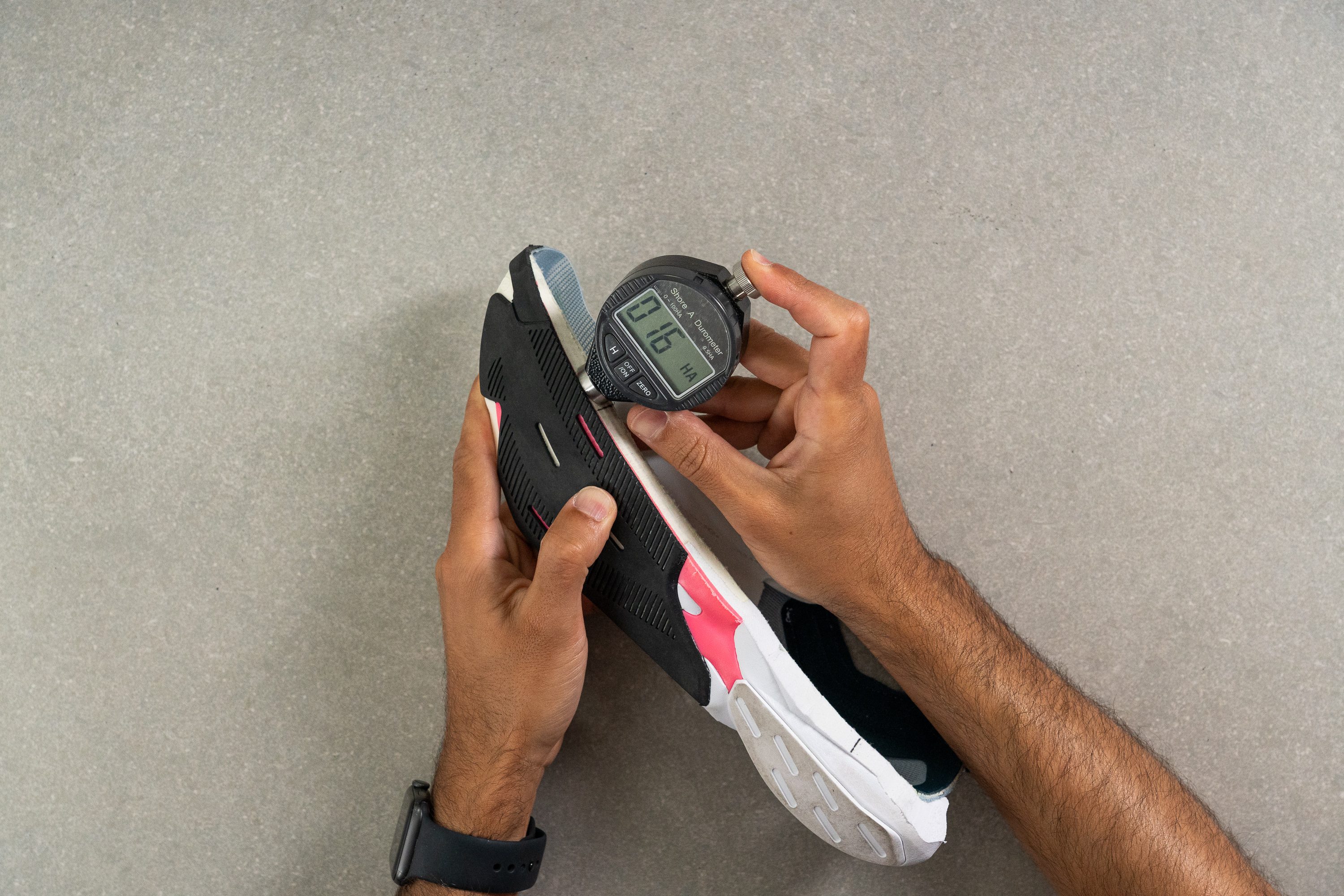
Softness, however, isn’t the only factor that affects the way a midsole feels underfoot. Take a look at this video where we test the Adios 8’s rocker geometry.
While the shoe has almost no rocker geometry, we get an indication of how snappy the foam is at the forefoot by the way the shoe bounces. This runs contrary to many present-day running shoes that make use of rocker designs and modern technology to provide a more bouncy and effortless feeling underfoot.
In this way the Adios 8 feels more like an old-school runner where we couldn’t easily just slip into cruise control, instead we were only able to get out of the shoe as much as we put in. This isn’t a good or bad thing, but more of a matter of taste. For those looking for a smoother and bouncier modern ride, we recommend the ASICS Metaspeed Edge+.
| Adizero Adios 8 | 18.9 HA |
| Average | 22.7 HA |
Size and fit
Size
Adidas Adizero Adios 8 fits true to size (63 votes).
Internal length
| Adizero Adios 8 | 266.9 mm |
| Average | 269.4 mm |
Width / Fit
For a brand notorious for its narrow fitting racing shoes, we were pleasantly surprised with how accommodating the Adios 8 is! We measured the toebox to be 101.5 mm at its widest point; which, as you can see from the chart below, is fairly broad compared to our lab average for road-running shoes, let alone shoes that are race-day ready.
This means that wide-footed runners can kiss those blisters goodbye as there’s little chance of rubbing against the sides of the Adios 8’s spacious toebox. Runners with narrow feet, however, might consider sizing down as the shoe is also a little long for its size. Failing that, we recommend the Nike Zoom X Streakfly as a more tight-fitting racing shoe.
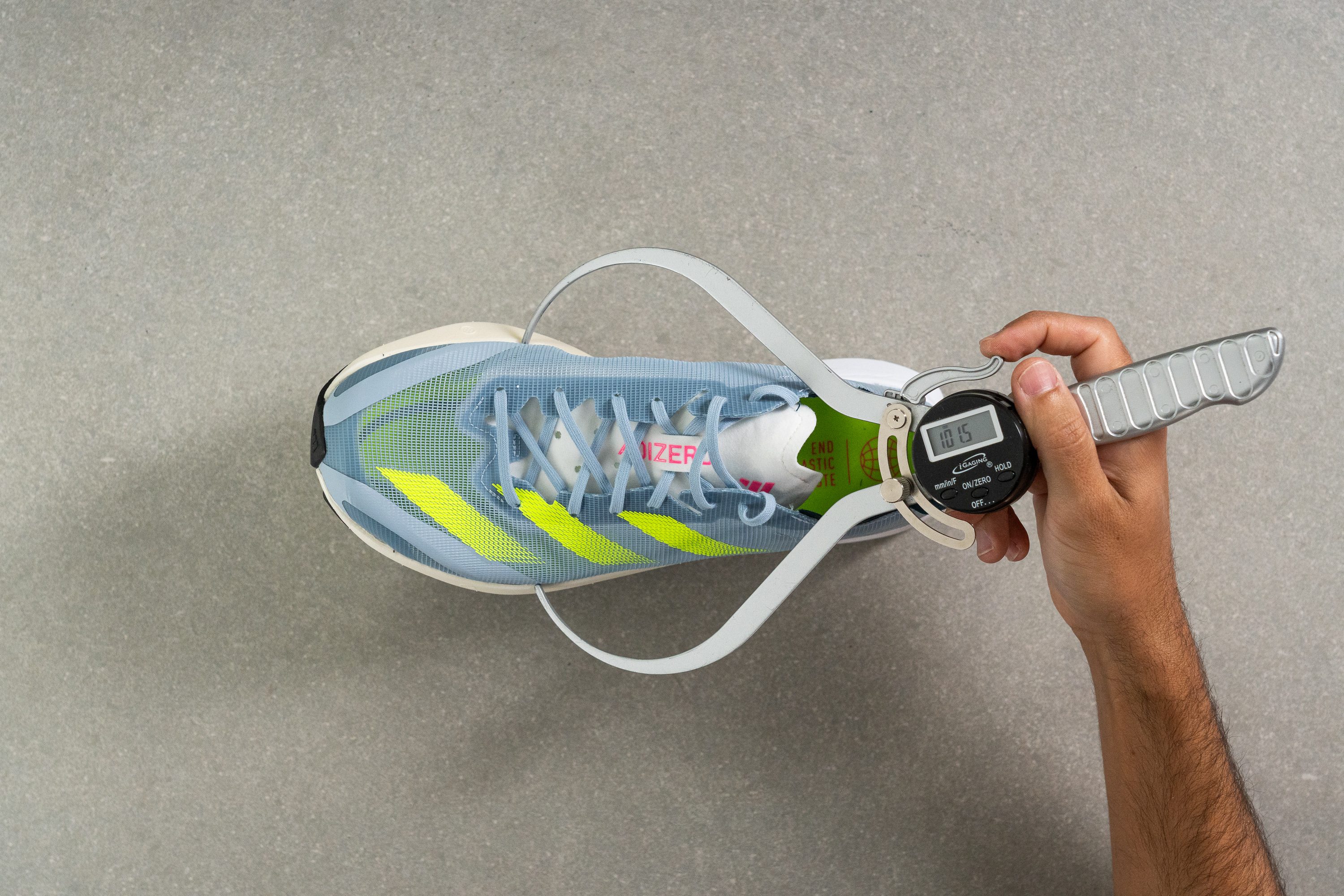
This test follows an older methodology, which is why you don't see recently tested shoes in the chart. Results from different methodologies can not be compared.
| Adizero Adios 8 | 101.5 mm |
| Average | 98.5 mm |
Toebox width
The Adios 8’s upper doesn’t taper much towards the toe area, with our caliper measuring the width of the toebox at the big toe to be 80.9 mm. This is also much roomier than our current lab average and means that our feet had plenty of room to splay out on our landings.
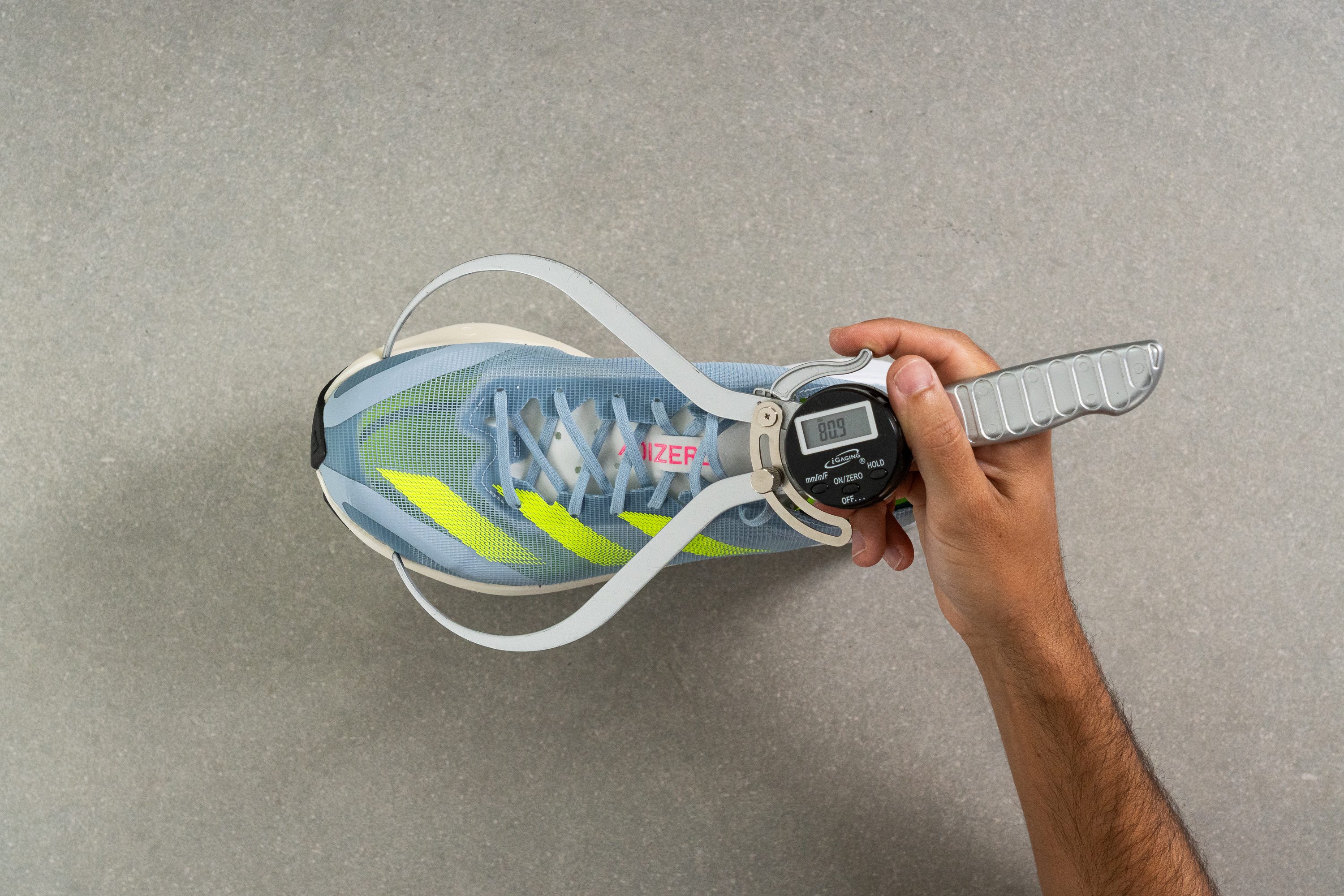
This test follows an older methodology, which is why you don't see recently tested shoes in the chart. Results from different methodologies can not be compared.
| Adizero Adios 8 | 80.9 mm |
| Average | 78.4 mm |
Traction / Grip
The Adios 8 makes use of high-performance rubber provided by Continental, the racing tyre company, as a part of their ongoing partnership. This super-grippy and lightweight material covers the bulk of the forefoot area, with two narrow strips covering the heel sections that make contact with the ground.
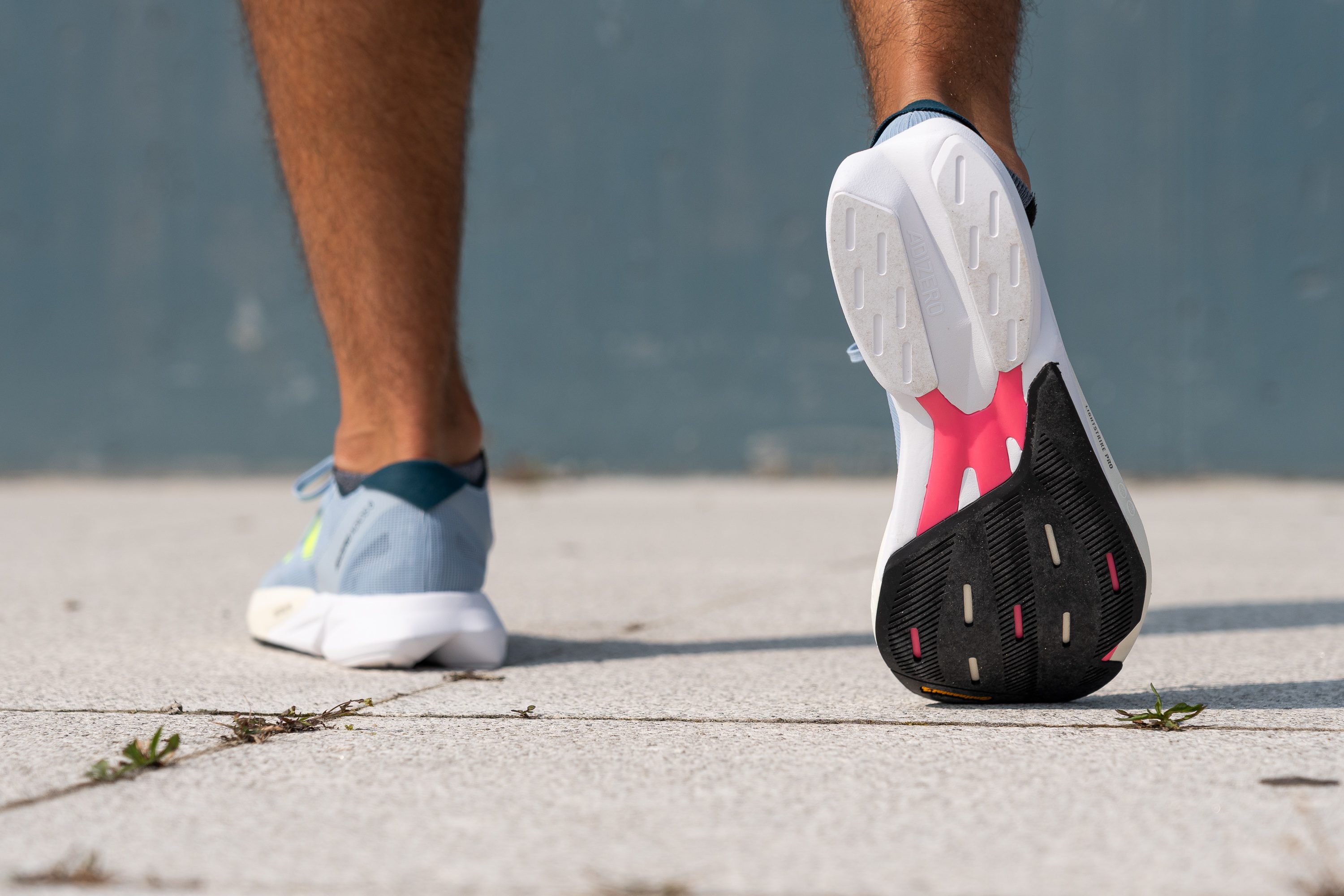
This incomplete coverage serves to trim weight off the Adios 8, but still provides enough traction that we had no issues taking corners at speed during our test runs.
All that hard Continental rubber underfoot does make the Adios 8 quite noisy; with their rhythmic slaps against the pavement forming the background noise of our test runs. Not the worst way to monitor pace though.
Traction test
The Adios 8 uses high-performance Continental rubber—thanks to Adidas' long-running partnership with the tire giant. That’s how it nailed a strong 0.55 score in our test, offering dependable grip in blazing heat or soaking wet conditions.
| Adizero Adios 8 | 0.55 |
| Average | 0.49 |
Outsole design
The grippy and lightweight rubber covers the bulk of the forefoot area, with two narrow strips covering the heel sections that make contact with the ground.
This incomplete coverage serves to trim weight off the Adios 8, but still provides enough traction that we had no issues taking corners at speed during our test runs.

Flexibility / Stiffness
The plastic shank doesn’t stiffen up the shoe to the same extent as a carbon plate would. As a result, our lab test demonstrates that only 8.8N of force is required to bend the shoe 30 degrees.
This makes the Adios 8 significantly more flexible than the average shoe according to our current lab average.
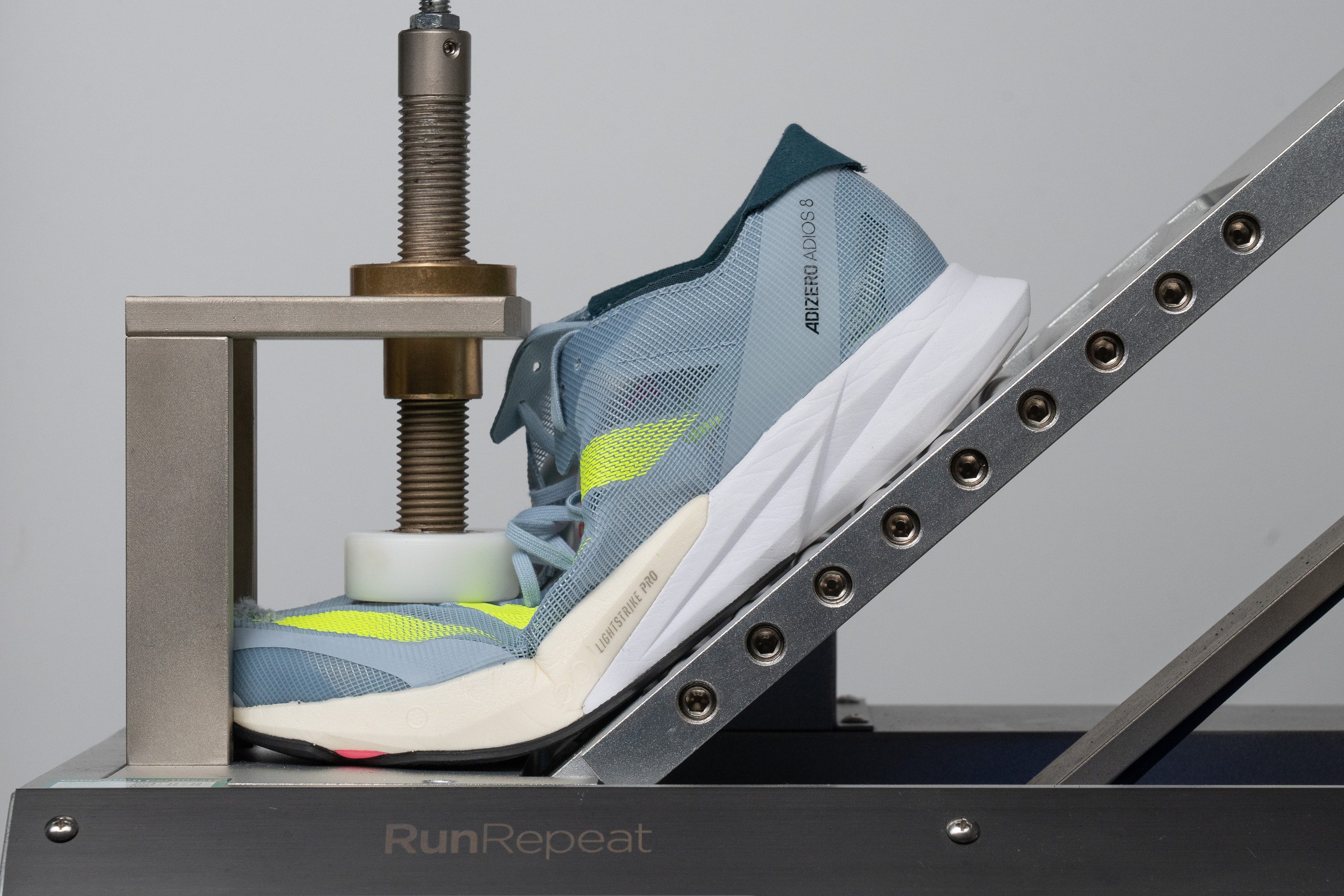
| Adizero Adios 8 | 8.8N |
| Average | 15.3N |
Stiffness in cold (%)
When we repeated the stiffness test after leaving the Adios 8 in the freezer for 20 minutes, we found that the shoe barely stiffened up at all! With a reading of only 20N, the Adios 8 is over 50% more flexible than our current lab average for road running shoes when exposed to frigid conditions.
With only a 14.1% variance between warm and cold conditions; the Adios 8 is a very consistent shoe compared to the average road shoe that stiffens up much more in the cold.
As previously stated, however, the almost non-existent upper presents its own drawbacks in extremely cold conditions.
| Adizero Adios 8 | 14% |
| Average | 33% |
Weight
Which brings us to the scale; the Adios 8 weighs in at a lean 7.4 Oz (210g) which is well below the current lab average, and only slightly higher than the 6.98 Oz (198g) stated by Adidas.
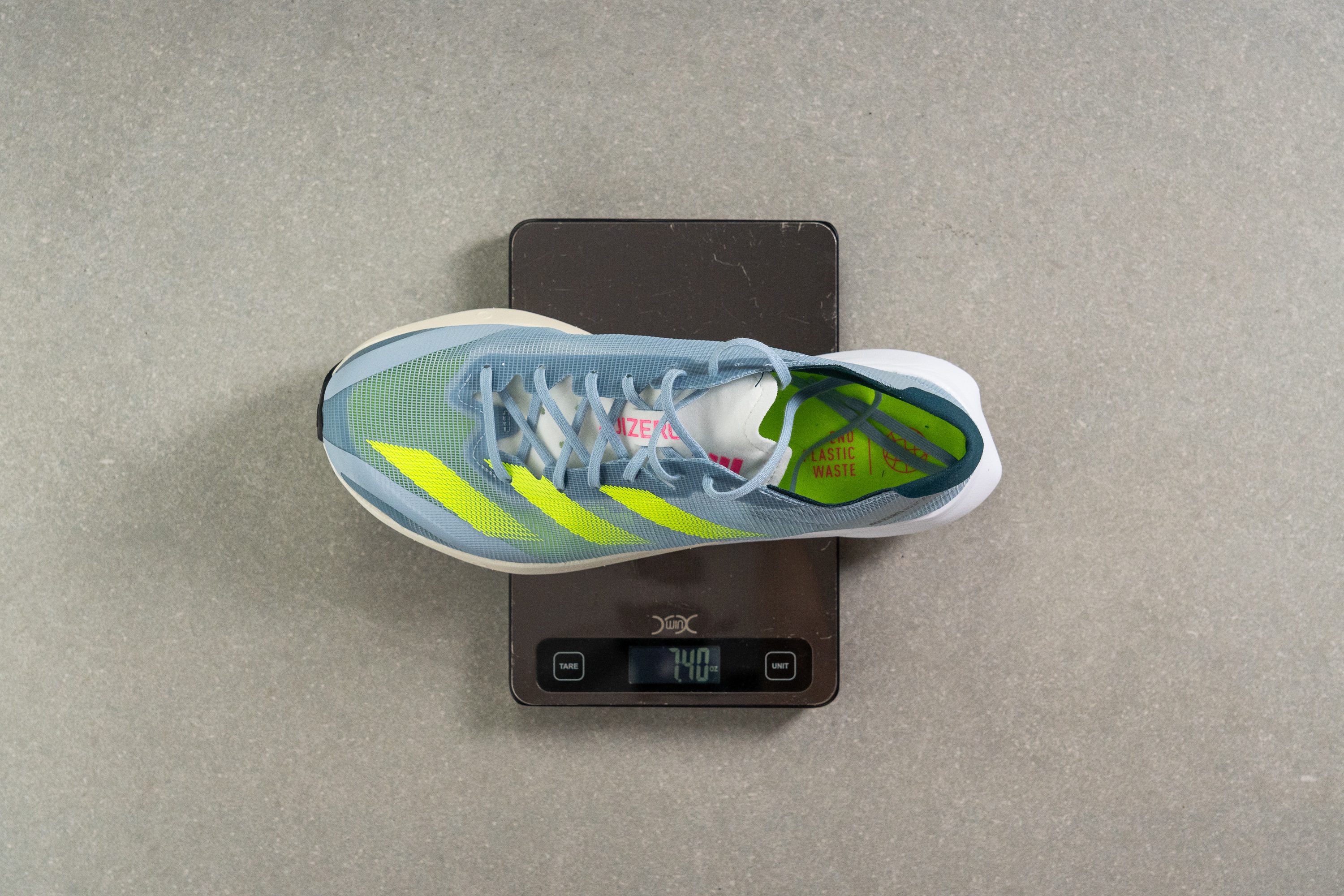
This isn’t unusual for a speedy shoe, however, and there are some even lighter options out there on a similar budget, like the Nike ZoomX Steakfly.
| Adizero Adios 8 | 7.4 oz (210g) |
| Average | 9.3 oz (264g) |
Breathability
Just by looking at it we can safely assume that the Adios 8 is a well-ventilated shoe. The almost transparent upper allowed the smoke to dissipate quickly and steadily throughout the shoe during our breathability test.
The breathability of the shoe is further attested by our light test where we can see how easily the light shines through the barely-there upper. We therefore give the Adios 8 a 5 out of 5 on breathability.
Using our microscope, it’s clear to see how heat escapes so effortlessly through the evenly-spaced lattice mesh that makes up the Adios 8’s upper.
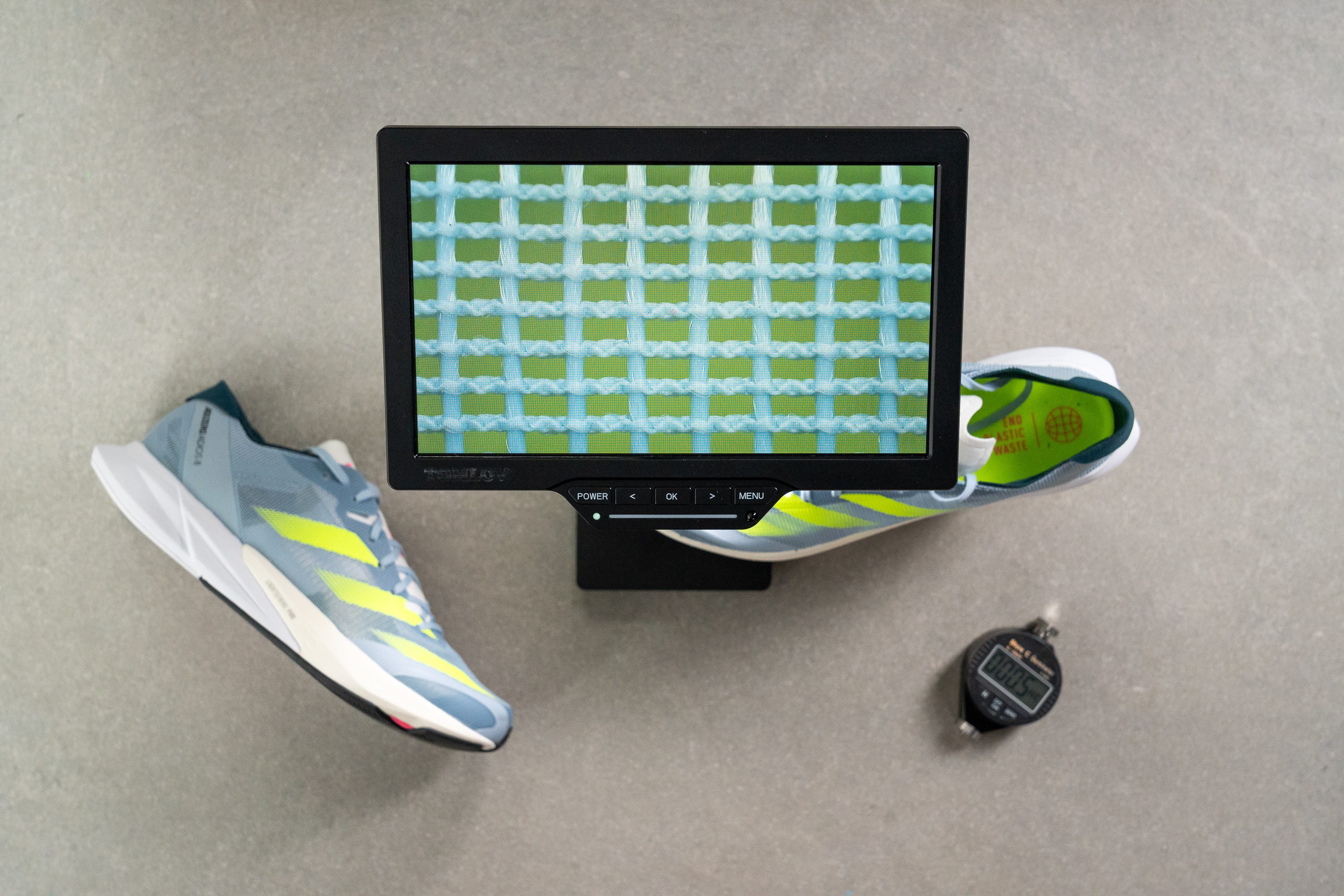
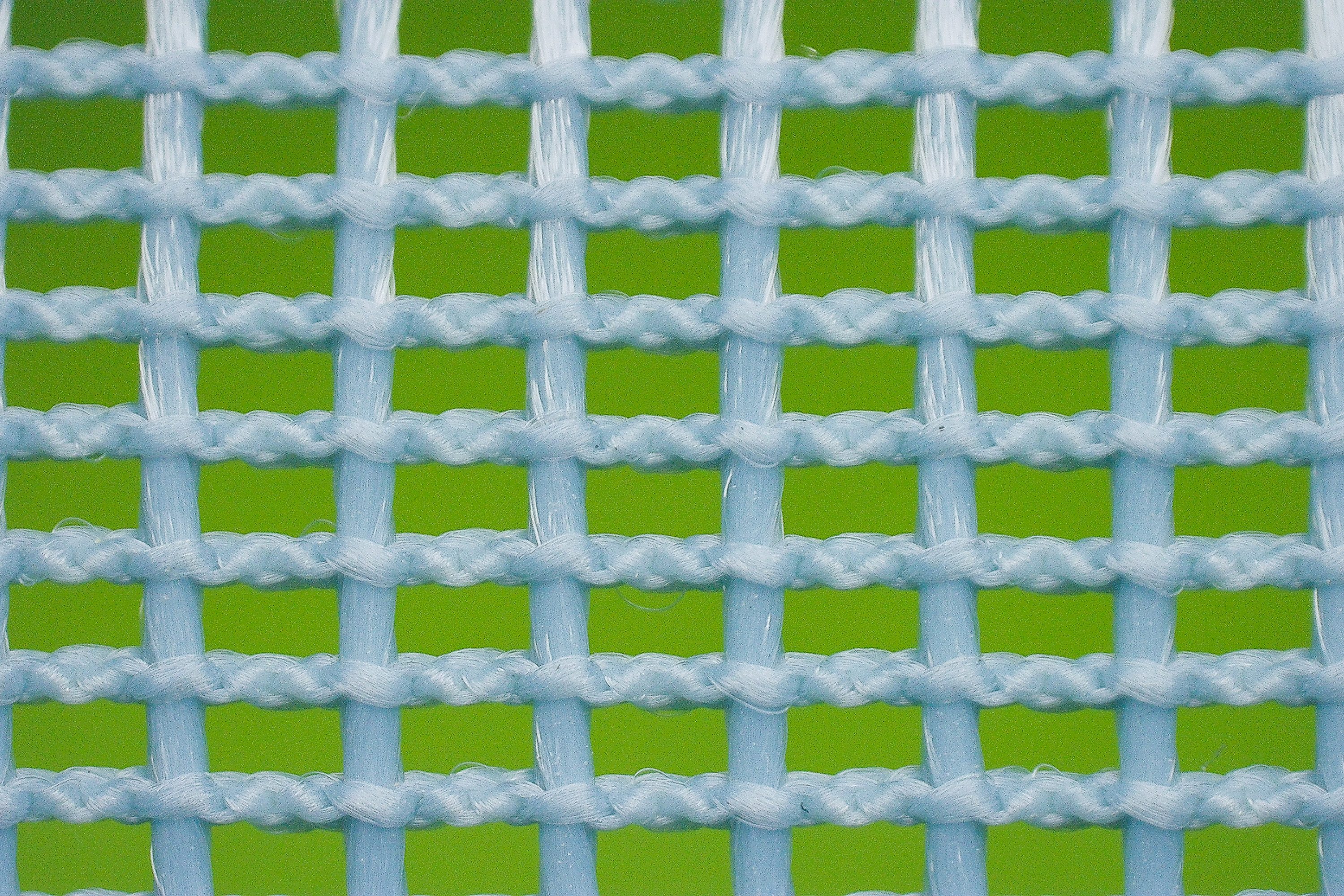
While this makes the Adios 8 ideal for warm summer runs, be prepared for soggy socks or damp toes if you encounter even a smattering of rain or an unexpected puddle.
| Adizero Adios 8 | 5 |
| Average | 3.7 |
Stability
Lateral stability test
The Adios 8 feels a tad unstable underfoot. While we didn’t feel like we might topple over when we shifted our weight from side to side; the updated midsole geometry and the flexible heel counter made us feel a little wobbly when cornering at high speeds.
The low stack height does help to offset the Adios 8’s unsteady nature, as low stacks tend to feel less tippy than taller maximal running shoes.
Torsional rigidity
The Adios 8 boasts a three-pronged plastic shank that runs through the midsole which Adidas has dubbed the Energy Torsion Rod 2.0. The name implies that the shank lends the shoe a level of torsional stiffness, but as you can see from the video below the shoe twists and contorts with relative ease. We therefore gave the shoe a score of 2 out of 5 for torsional rigidity, with 5 being the most stiff.
This does mean that the shoe conforms with the natural movement of the foot during our stride, making it feel comfortable underfoot. On the other hand it does not provide good support for pronating runners. For a more rigid shoe with added stability features check out the On Cloudflyer.
| Adizero Adios 8 | 2 |
| Average | 3.5 |
Heel counter stiffness
The heel counter on the Adios 8 offered up no resistance to us pressing and squeezing on it, giving it a score of 1 out of 5.
This isn’t unusual for speedy shoes (see the Brooks Hyperion Tempo and Puma Deviate Nitro 2), and didn’t hinder us from achieving a good lockdown once we laced the Adios 8 up.
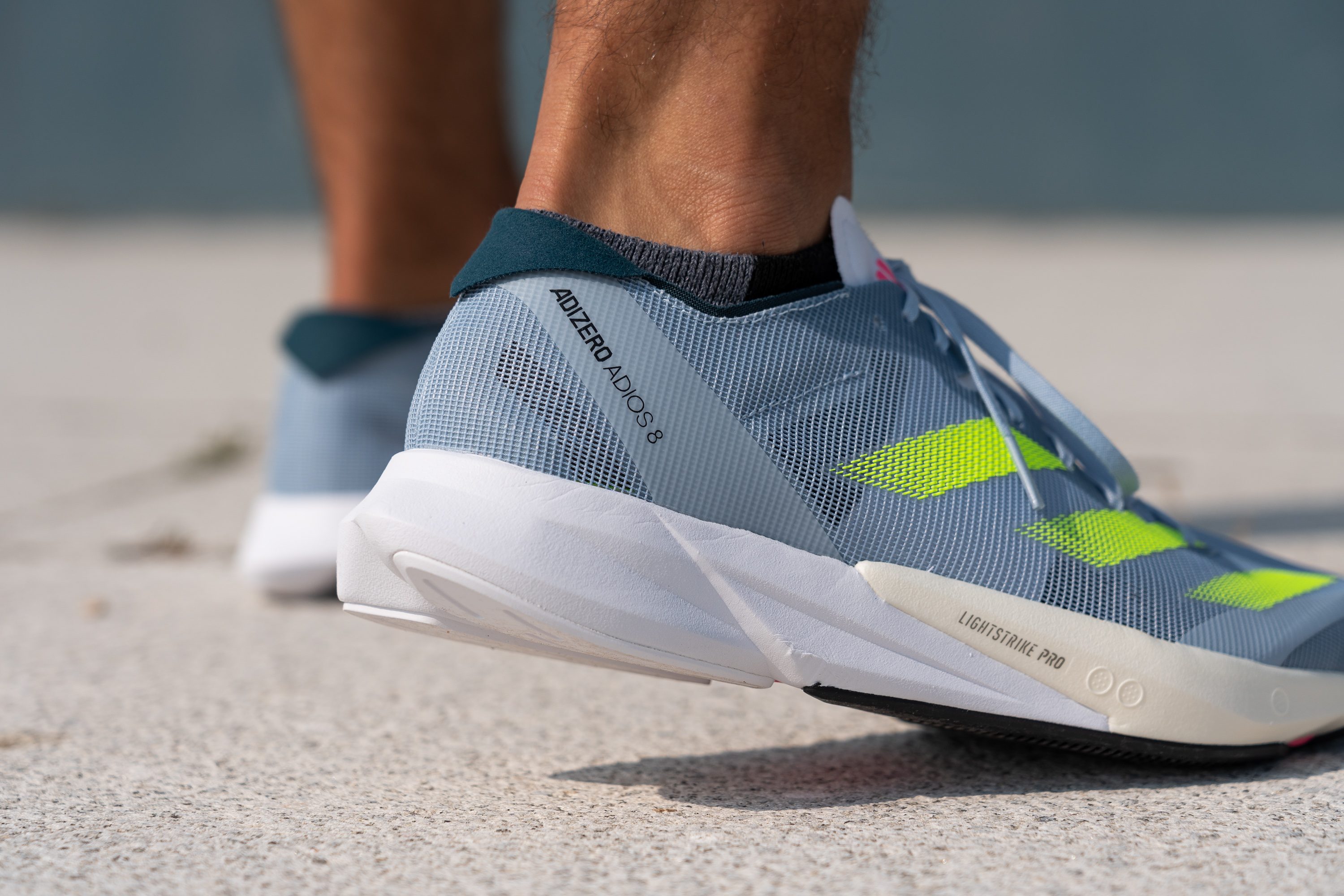
| Adizero Adios 8 | 1 |
| Average | 2.9 |
Midsole width - forefoot
Measuring 114 mm at the forefoot makes the Adios 8 on par with the current lab average for forefoot width. This gives us more than enough platform to land on as forefoot strikers.
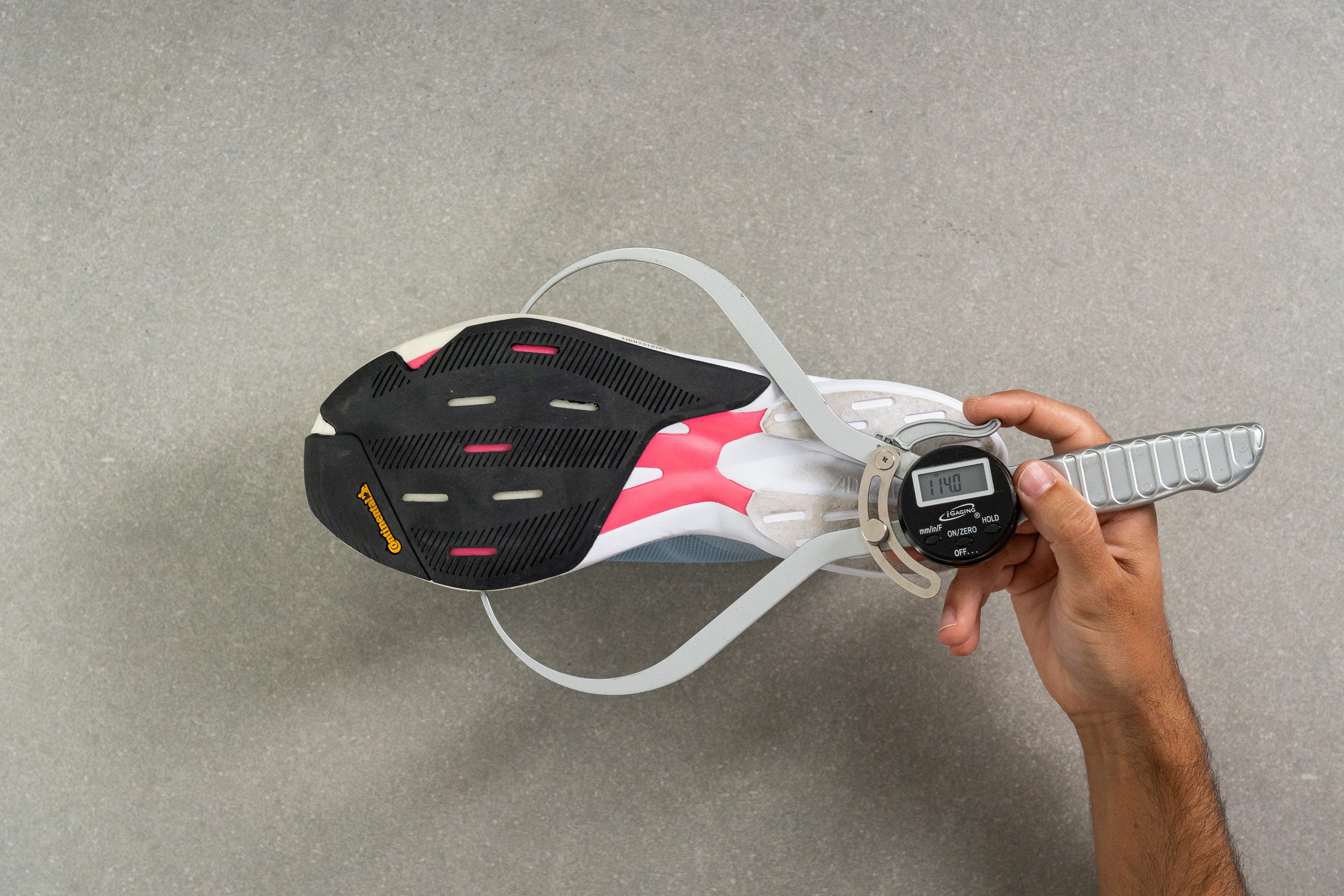
| Adizero Adios 8 | 114.0 mm |
| Average | 114.4 mm |
Midsole width - heel
The midsole tapers all the way down to 81.6 mm at the heel, which is notably narrower than average and lends the Adios 8 its aerodynamic silhouette. This create a smaller landing area at the rear of the shoe, and can contribute to an unsteady sensation for heel-striking runners.
We recommend that heel strikers should check out the Saucony Endorphin Speed 3, which sports a wider than average base at the heel.
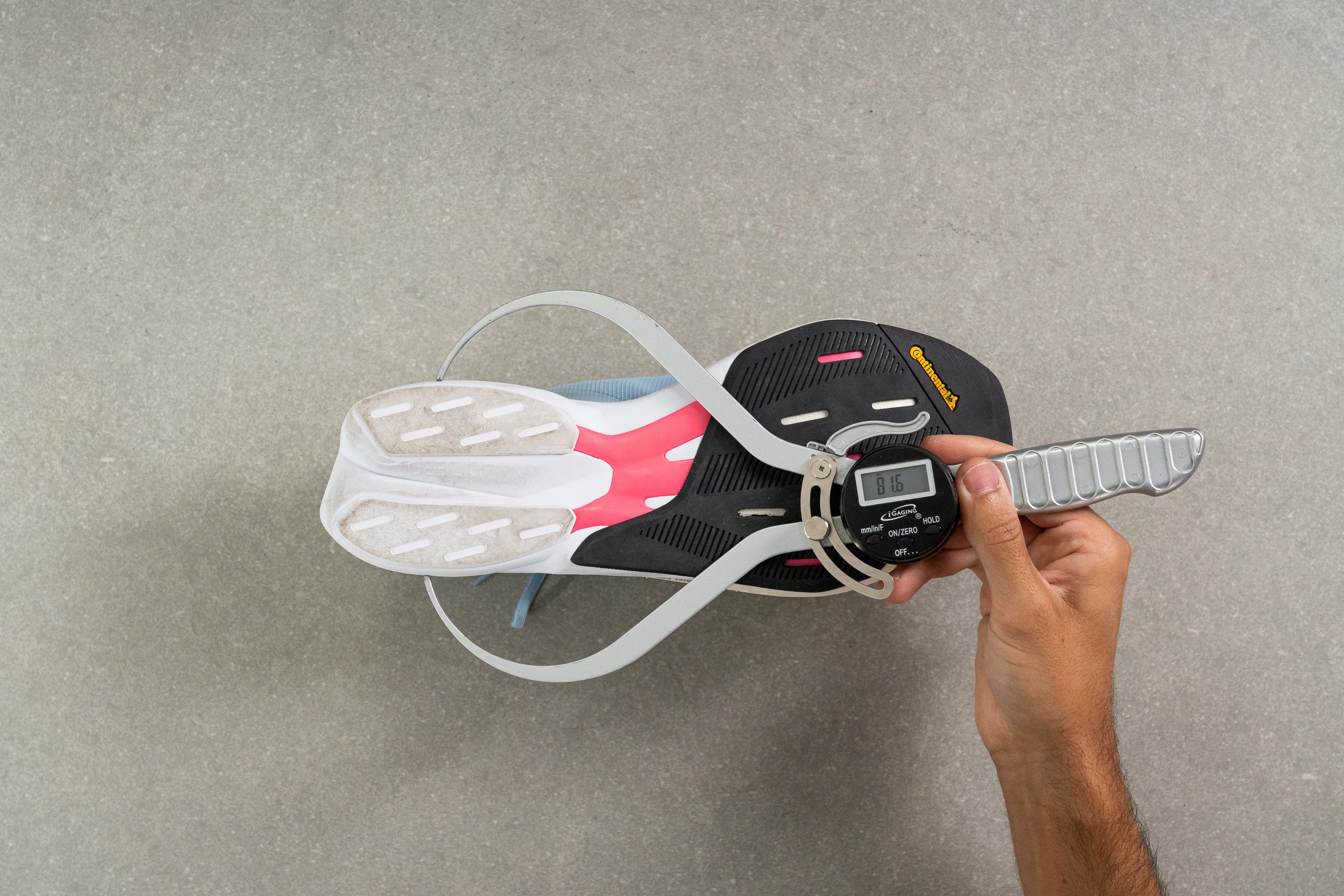
| Adizero Adios 8 | 81.6 mm |
| Average | 90.6 mm |
Durability
Toebox durability
Unsurprisingly, the fine mesh material didn’t stand up to our Dremel test. We cut clean through the material after 4 seconds at 10k RPM with a force of 3.2N. The damage didn’t spread beyond the area where the Dremel was applied though, with no major tears forming across the upper.
For that reason we rated it a 2 out of 5 as a small rip shouldn’t compromise the integrity of the upper.
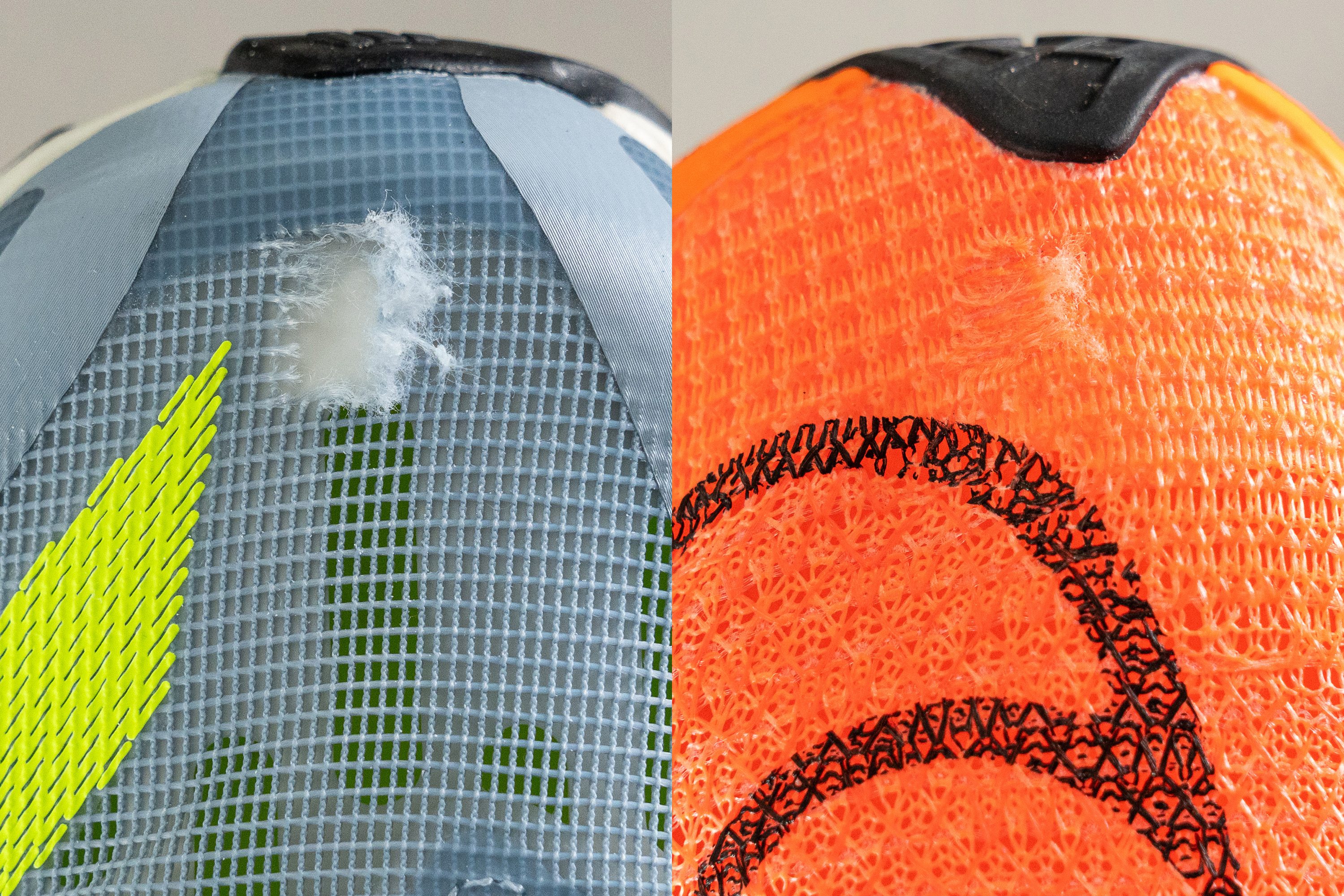
For the sake of comparison, have a look at the Adios 8’s upper side-by-side with the extremely durable toebox of the Nike Alphafly Next% 2, which looks like it only suffered a minor scuff after contending with our Dremel.
| Adizero Adios 8 | 1 |
| Average | 2.6 |
Heel padding durability
Our Dremel also eased through the heel collar like a hot knife through butter. A little bit of padding did survive after 4 seconds without looking an unsightly mess, so we scored it a 2 out of 5.
This means extensive heel rubbing will wear the material down over time, but there should still be a little padding left back there after 400 miles.
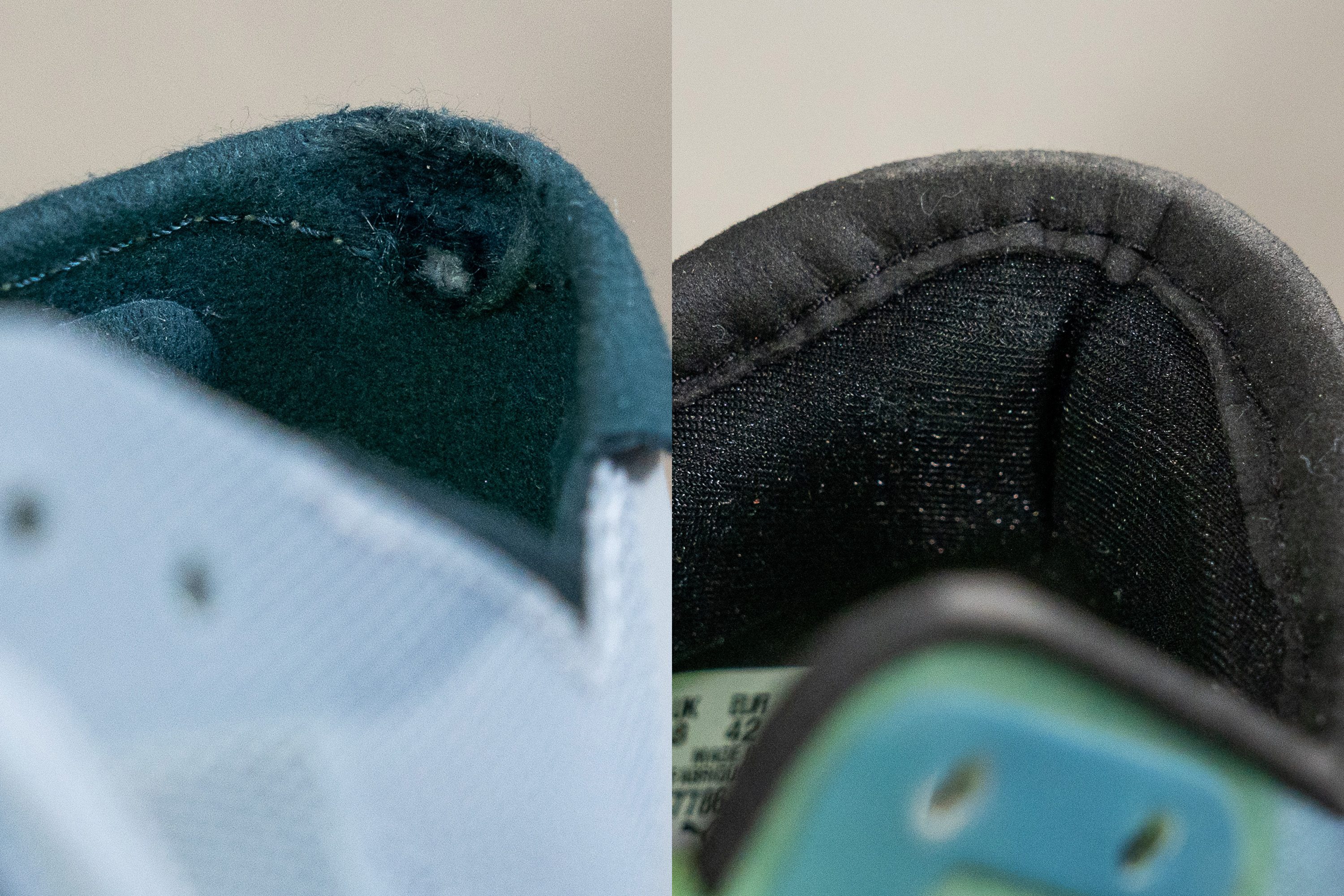
For an example of a shoe with a much more durable heel collar, have a look at how the Puma Deviate Nitro Elite 2 (on the right) fared against the same test.
| Adizero Adios 8 | 2 |
| Average | 3.4 |
Outsole hardness
Pressing our durometer against the outsole of the Adios 8 to test how hard it is gives us a reading of 85.1 HC. This is slightly higher than our current lab average and means that the outsole is much more durable than the shoe’s upper.
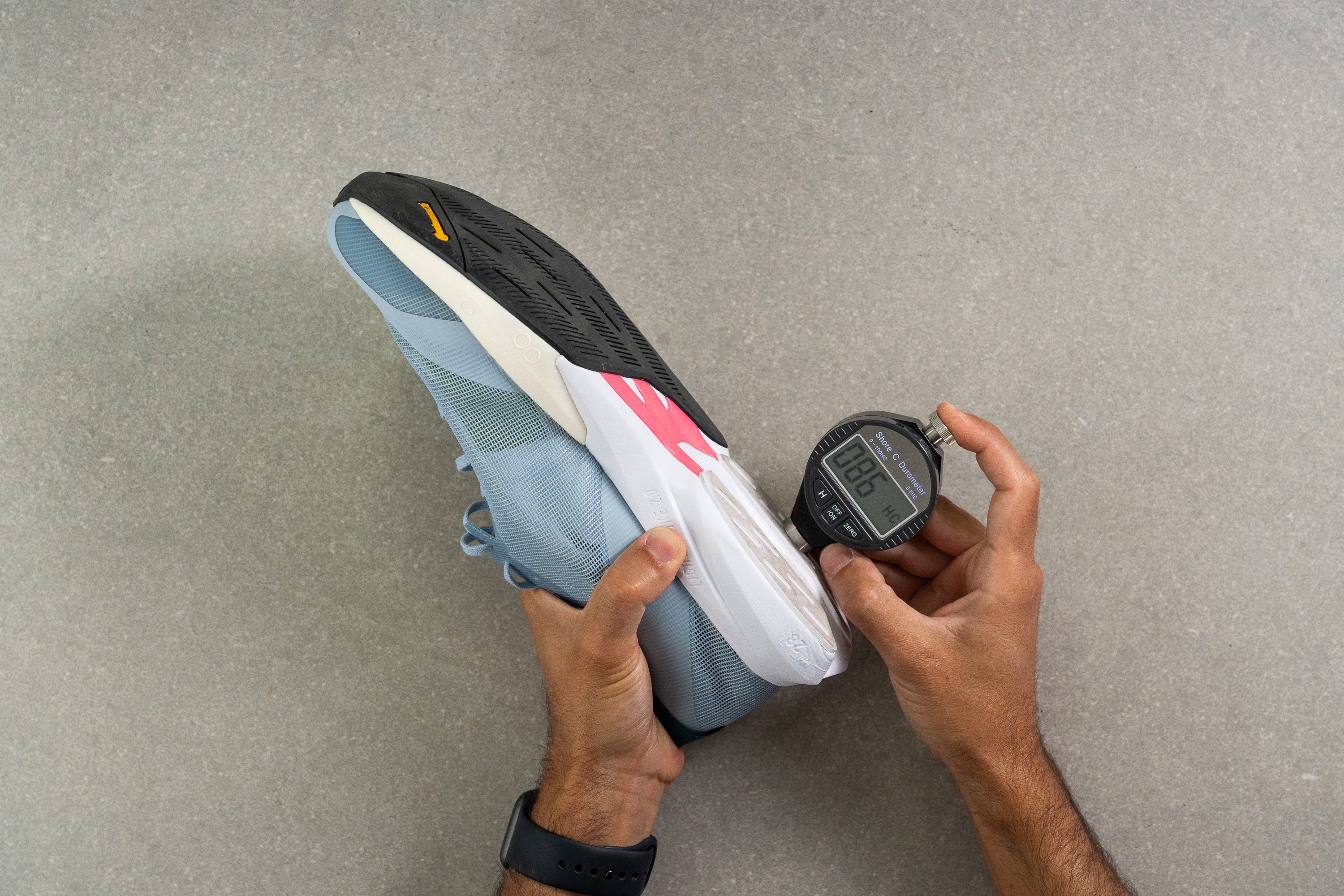
| Adizero Adios 8 | 85.1 HC |
| Average | 79.2 HC |
Outsole durability
To test the durability of the outsole, we again pressed our dreaded Dremel against it with a force of 3.2N at 10k RPM to simulate extreme wear and tear. When measuring the damage afterwards, we found that only 0.65 mm of the outsole had been corroded away.
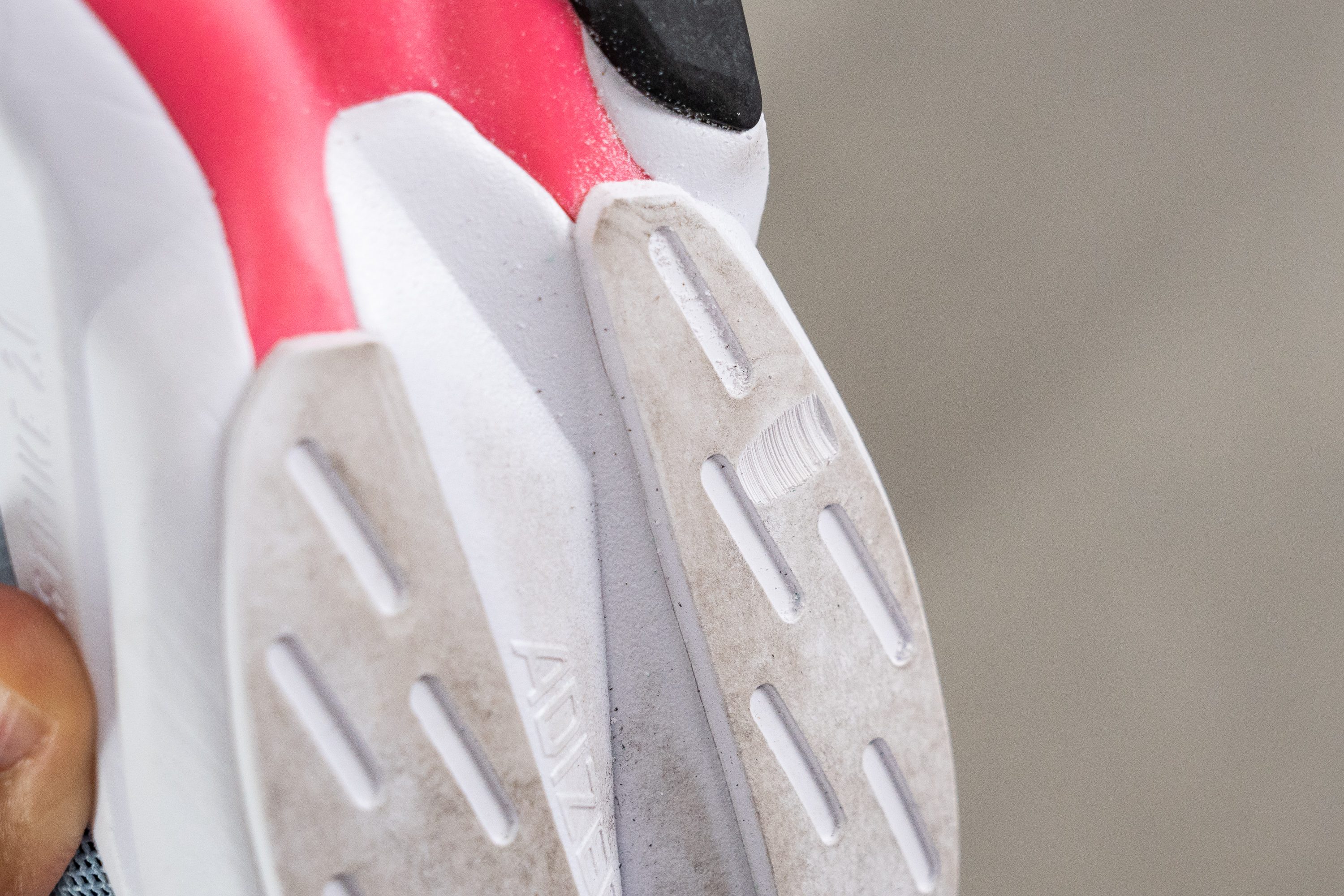
In short, we predict that it will take a lot more than 400 miles to wear this rubber out.
| Adizero Adios 8 | 0.7 mm |
| Average | 1.1 mm |
Outsole thickness
Using our calliper, we measured the outsole of the Adios 8 to be slightly thinner than average at only 2.4 mm. However, with the rubber performing as it did in our durability test, this shouldn’t be an issue.
By skimping on rubber, Adidas also manages to trim some weight off the Adios 8.
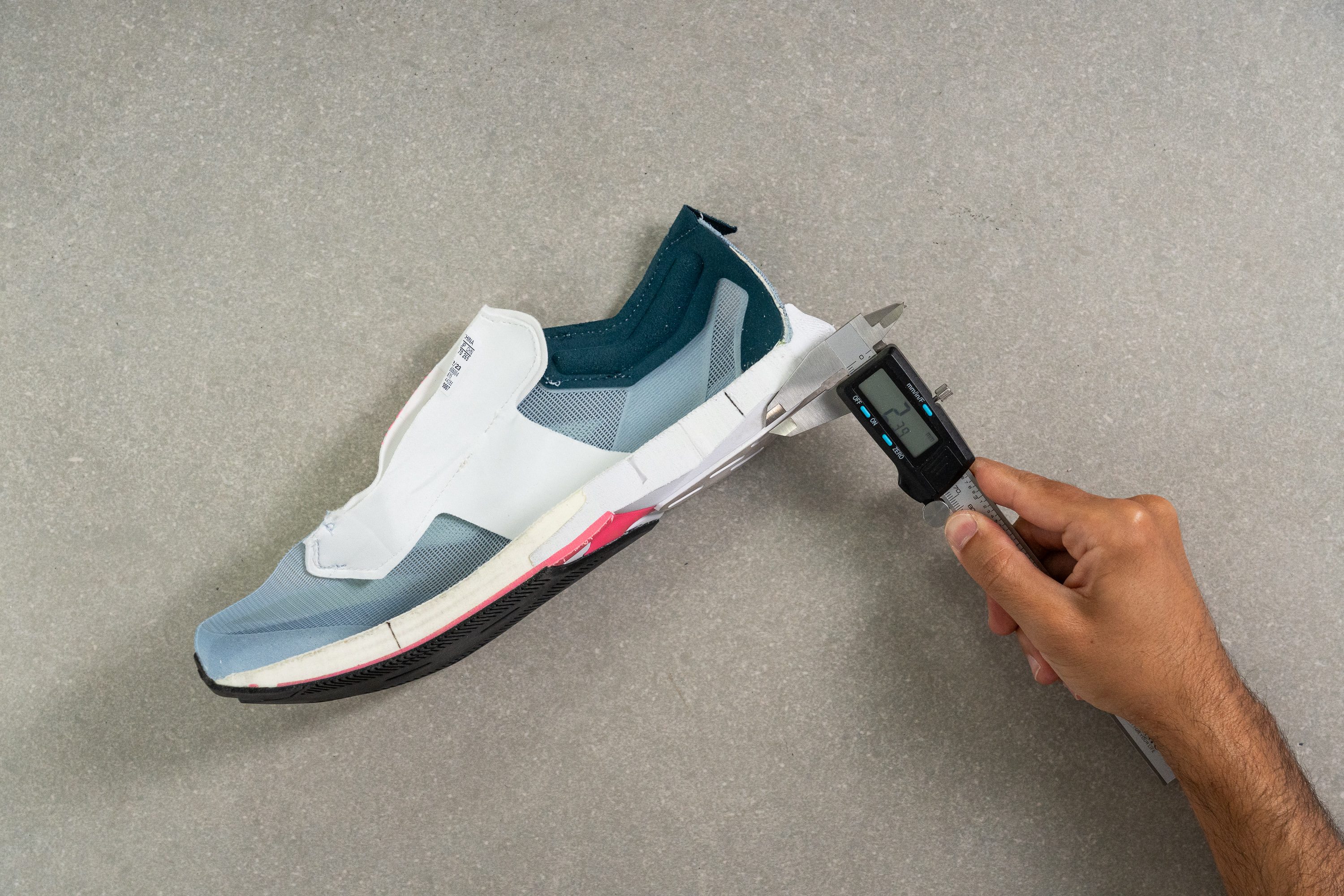
| Adizero Adios 8 | 2.4 mm |
| Average | 3.2 mm |
Misc
Insole thickness
At 3.0 mm, the insole is a little thinner than our current lab average. This didn’t present us with any issues during our test runs as our feet felt amply padded on our landings.
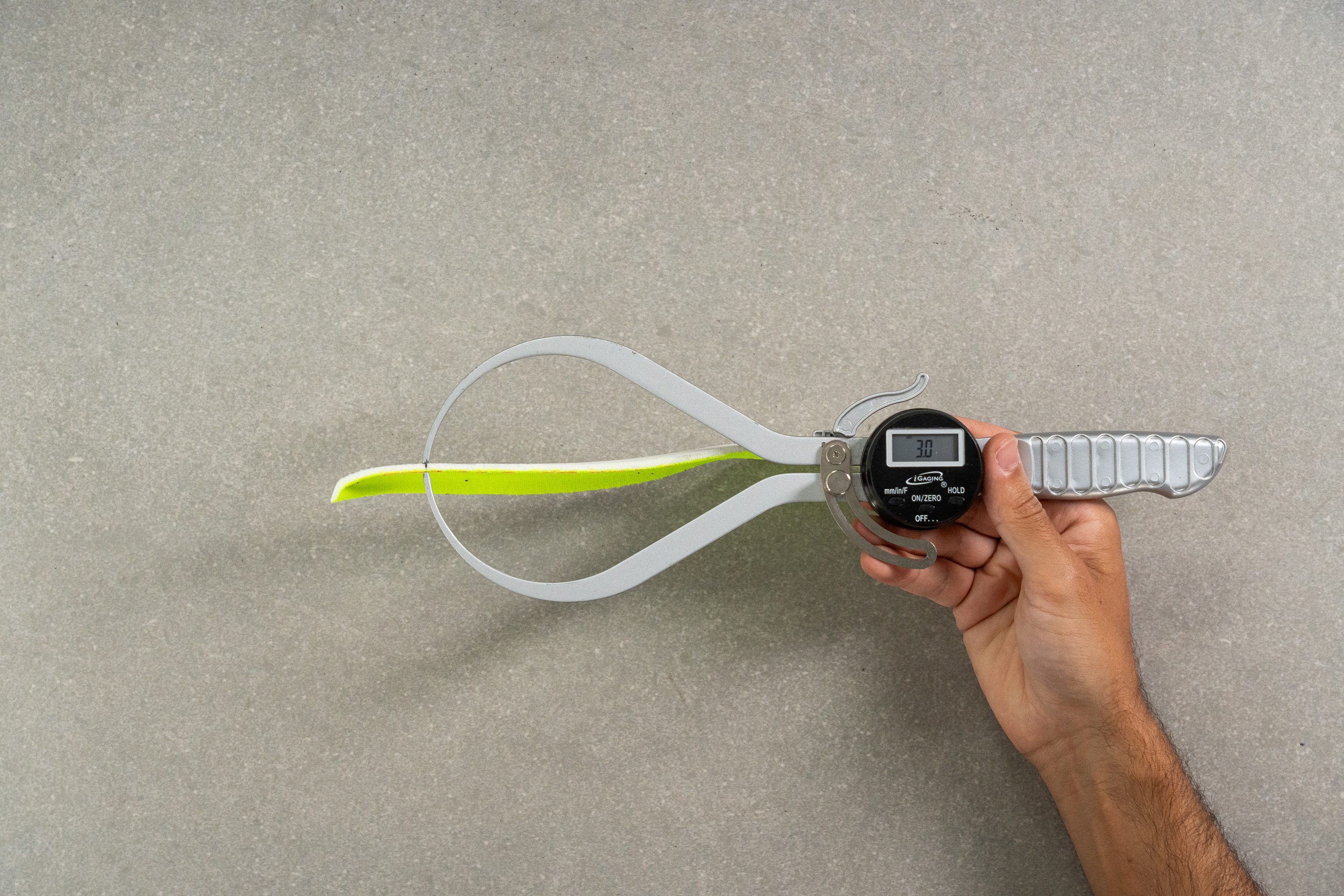
| Adizero Adios 8 | 3.0 mm |
| Average | 4.5 mm |
Removable insole
The Adios 8 has a removable insole which is good for runners who need to use custom orthotics.
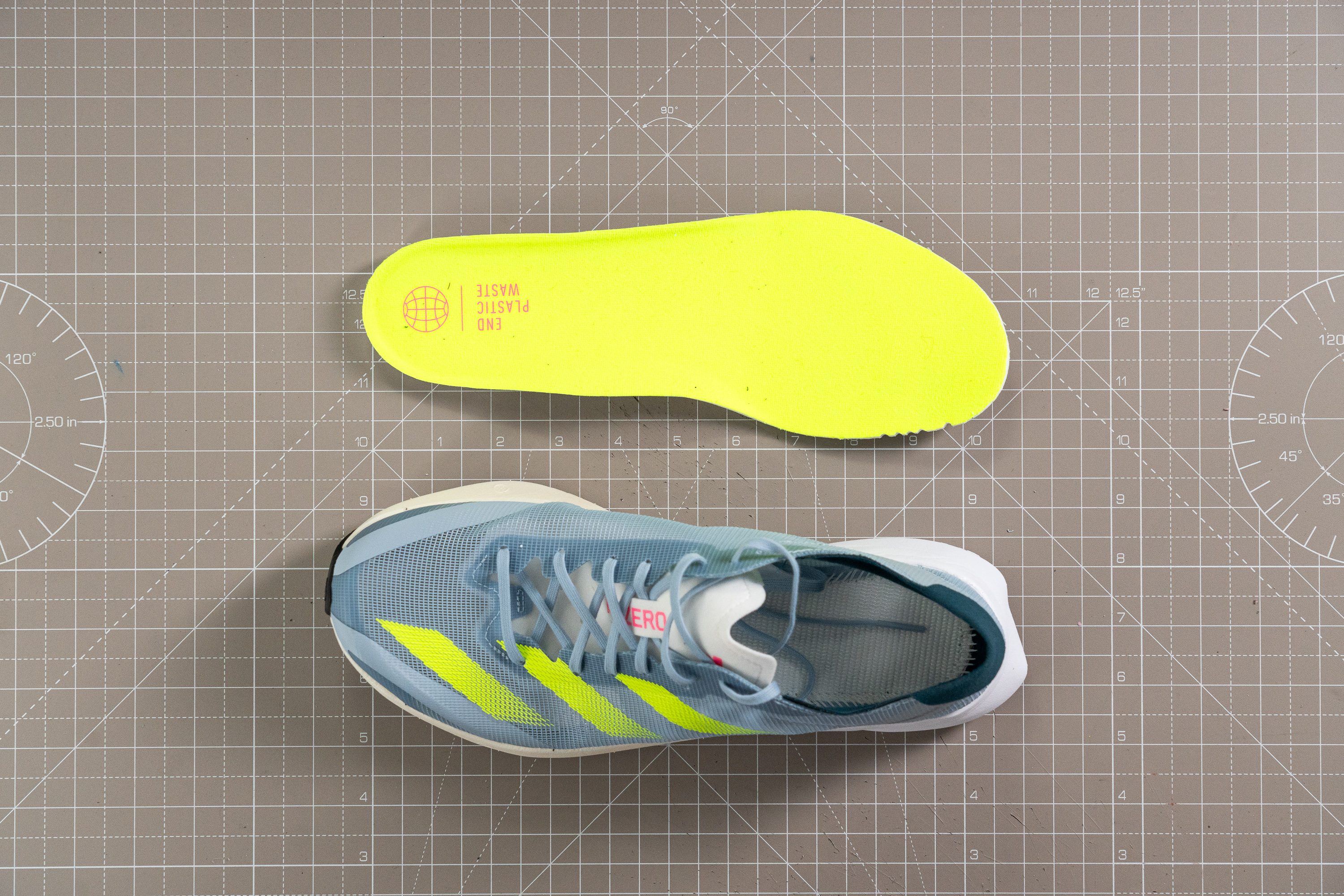
| Adizero Adios 8 | Yes |
Midsole softness in cold (%)
We repeated our durometer measurement after putting the Adios 8 in the freezer for 20 minutes to simulate exposure to cold weather conditions. With a reading of only 18.9 HA, the Lightrike 2.0 foam is still markedly softer than the average shoe, even at room temperature!
While the average shoe’s midsole usually stiffens up by 27% in the cold, the Adios 8’s only stiffened up a measly 3.8%. This small a difference is almost unheard of, and means that the Adios 8 should feel just as cushioned on bitterly-cold winter runs as on toasty summer days.
While this may be the case; taking the Adios 8, with its super airy upper, out on a brutal winter day will almost definitely give you a case of cold-feet to rival that of a groom at a shotgun wedding. For a zippy shoe that will stand up to the elements better, check out the Puma Deviate Nitro 2
| Adizero Adios 8 | 4% |
| Average | 24% |
Reflective elements
Who’s afraid of the dark? The Adios 8. With no reflective elements whatsoever, use caution when on the road and around bicycle paths if you take this shoe out at night.
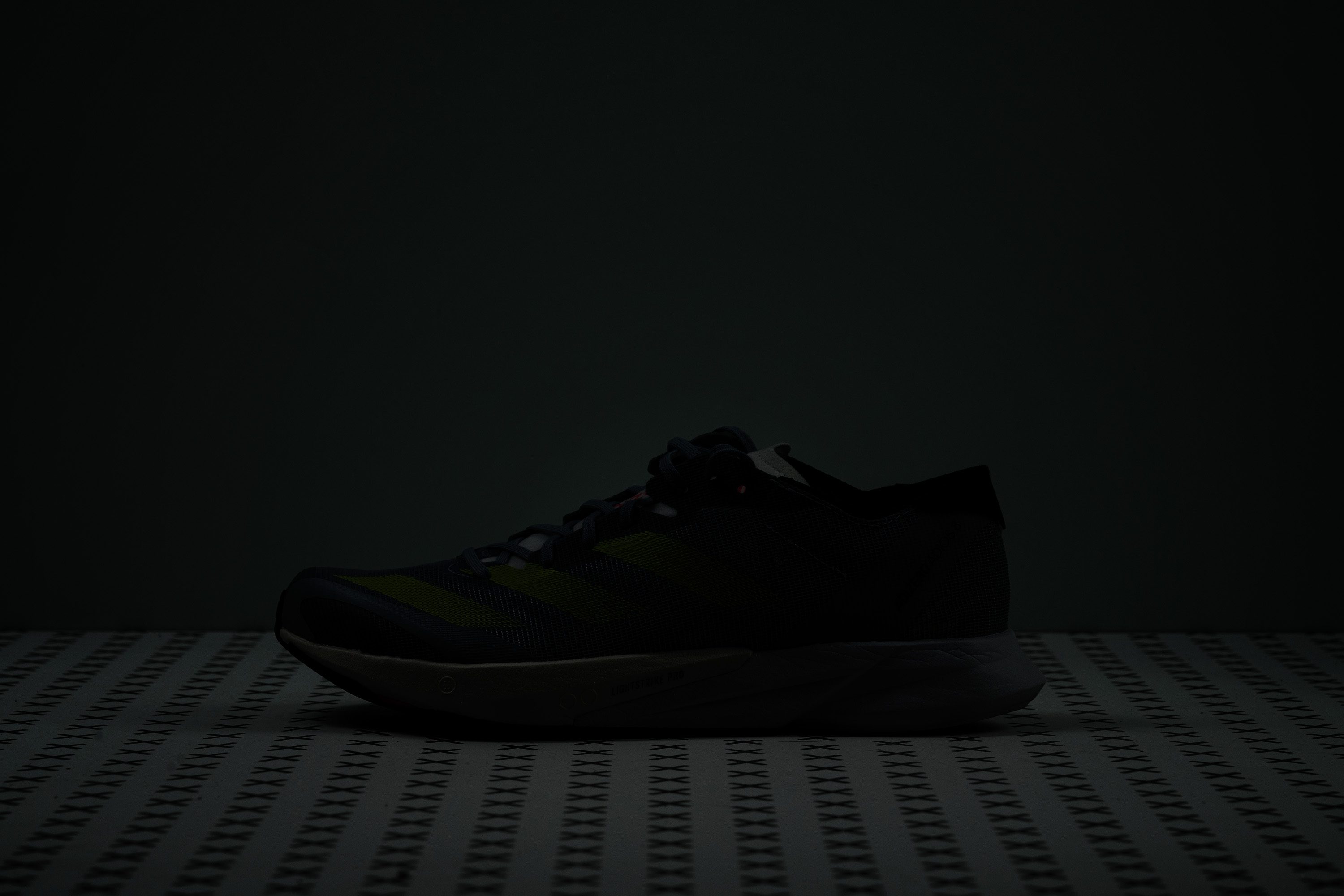
| Adizero Adios 8 | No |
Tongue padding
The padding on the tongue is also sparse. We measured it at only 2 mm which is notably thinner than our current lab average. In spite of the lean tongue, we still managed to get a good midfoot lockdown without experiencing any lace bite.
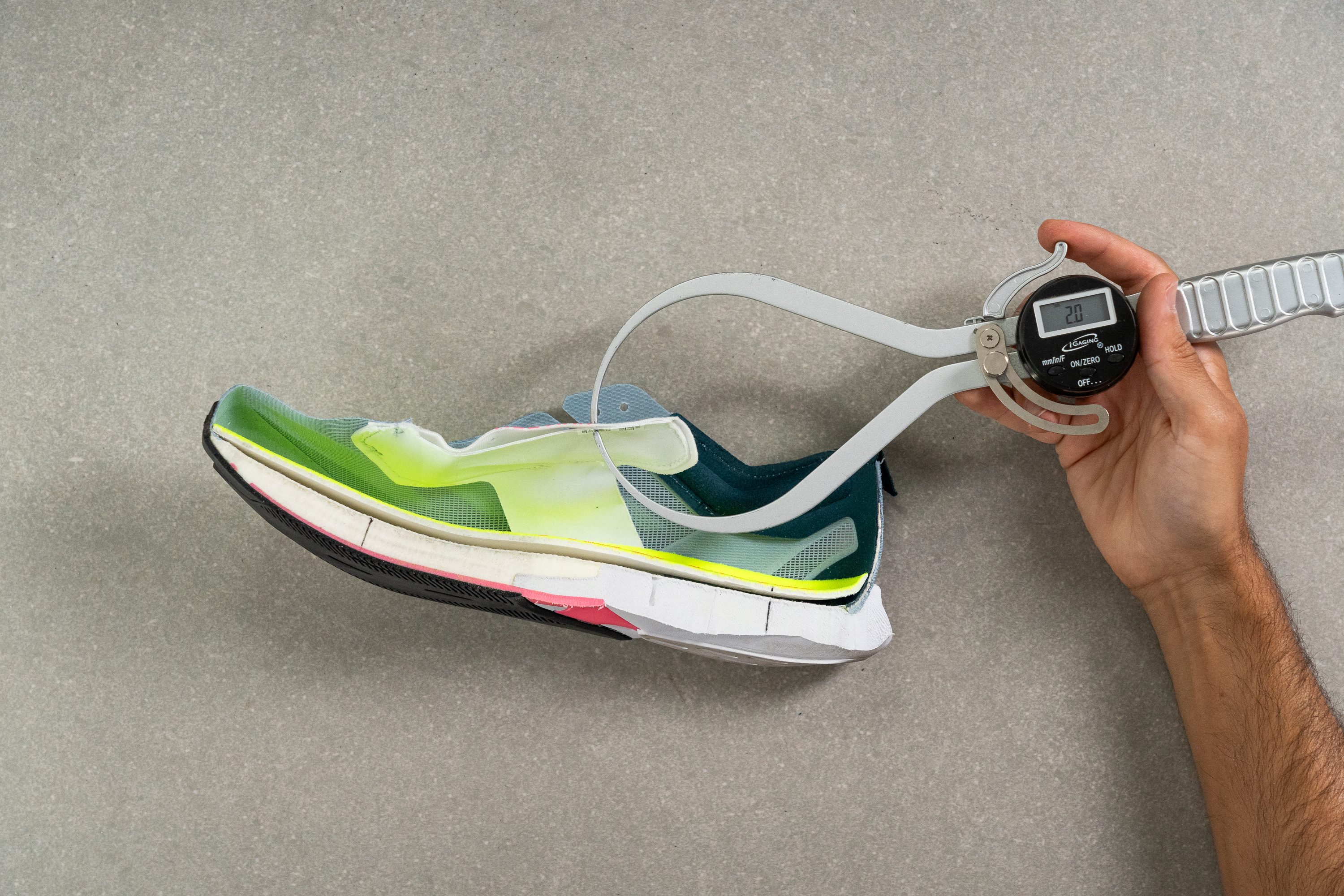
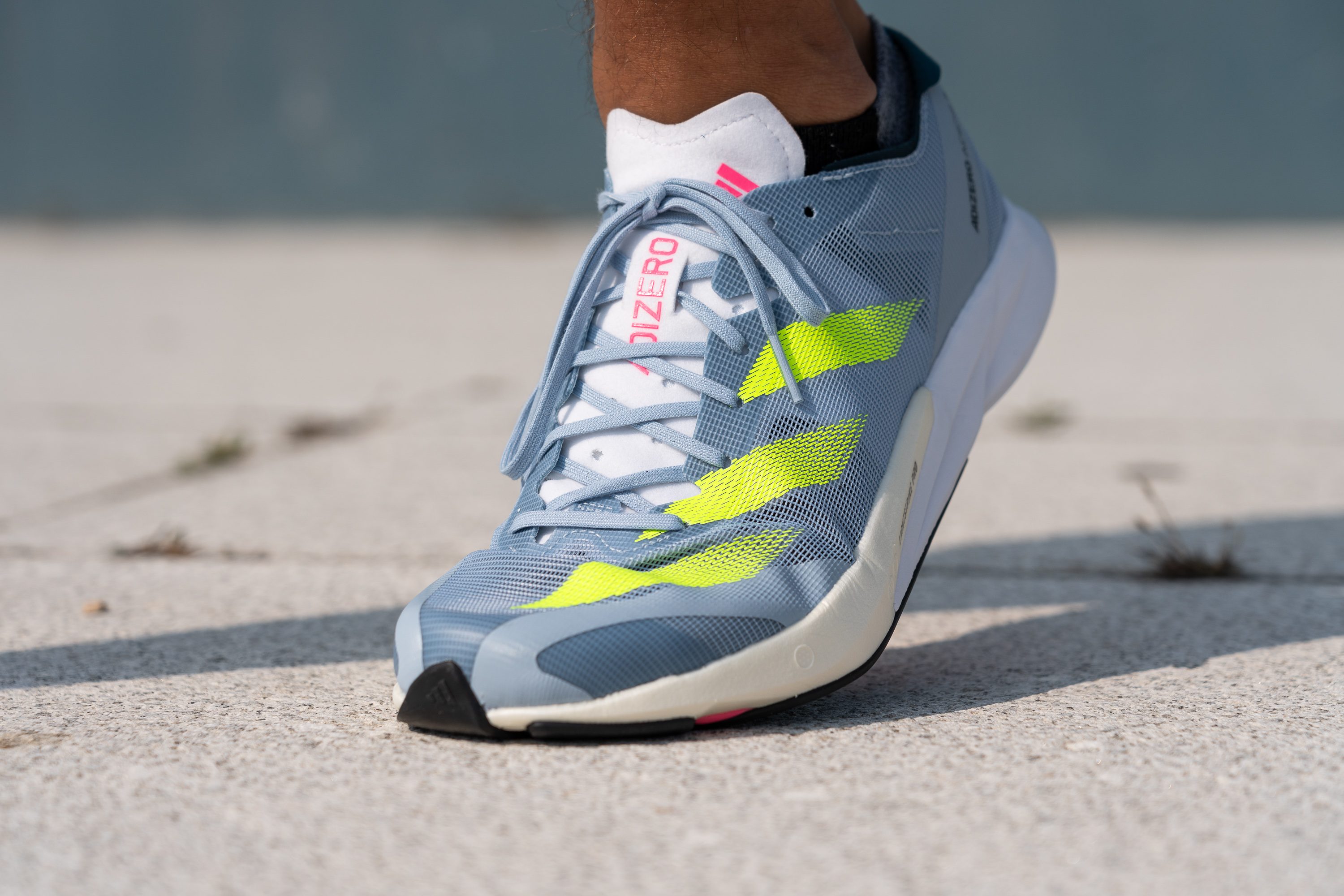
| Adizero Adios 8 | 2.0 mm |
| Average | 5.7 mm |
Tongue: gusset type
The tongue is semi-gusseted on both sides which, in combination with its central loop hole, means that there is no risk of the tongue slipping from side to side.
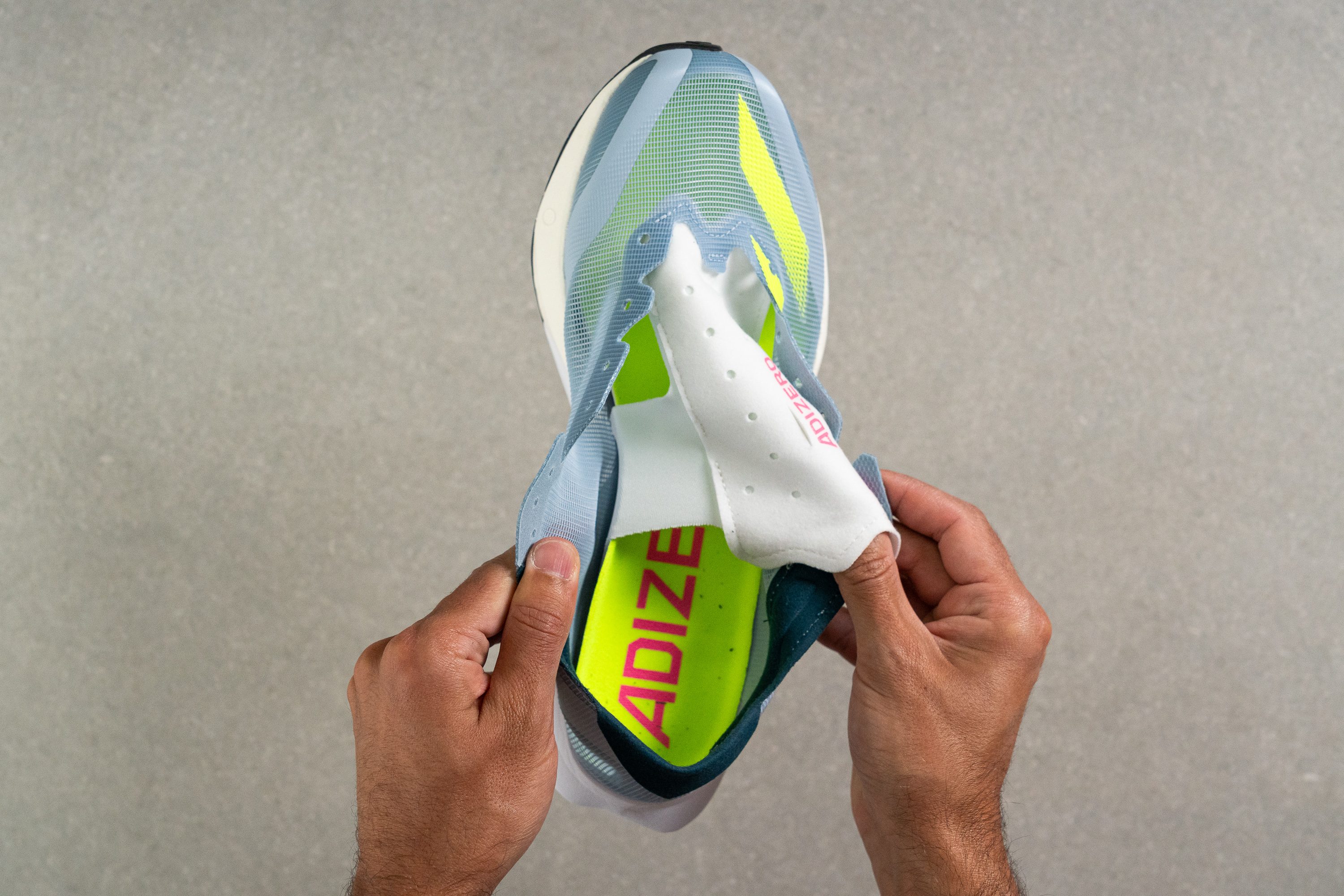
| Adizero Adios 8 | Both sides (semi) |
Heel tab
The Adios 8 features a neatly folded over pull-tab which makes it a little easier to slip this already accommodating shoe on.
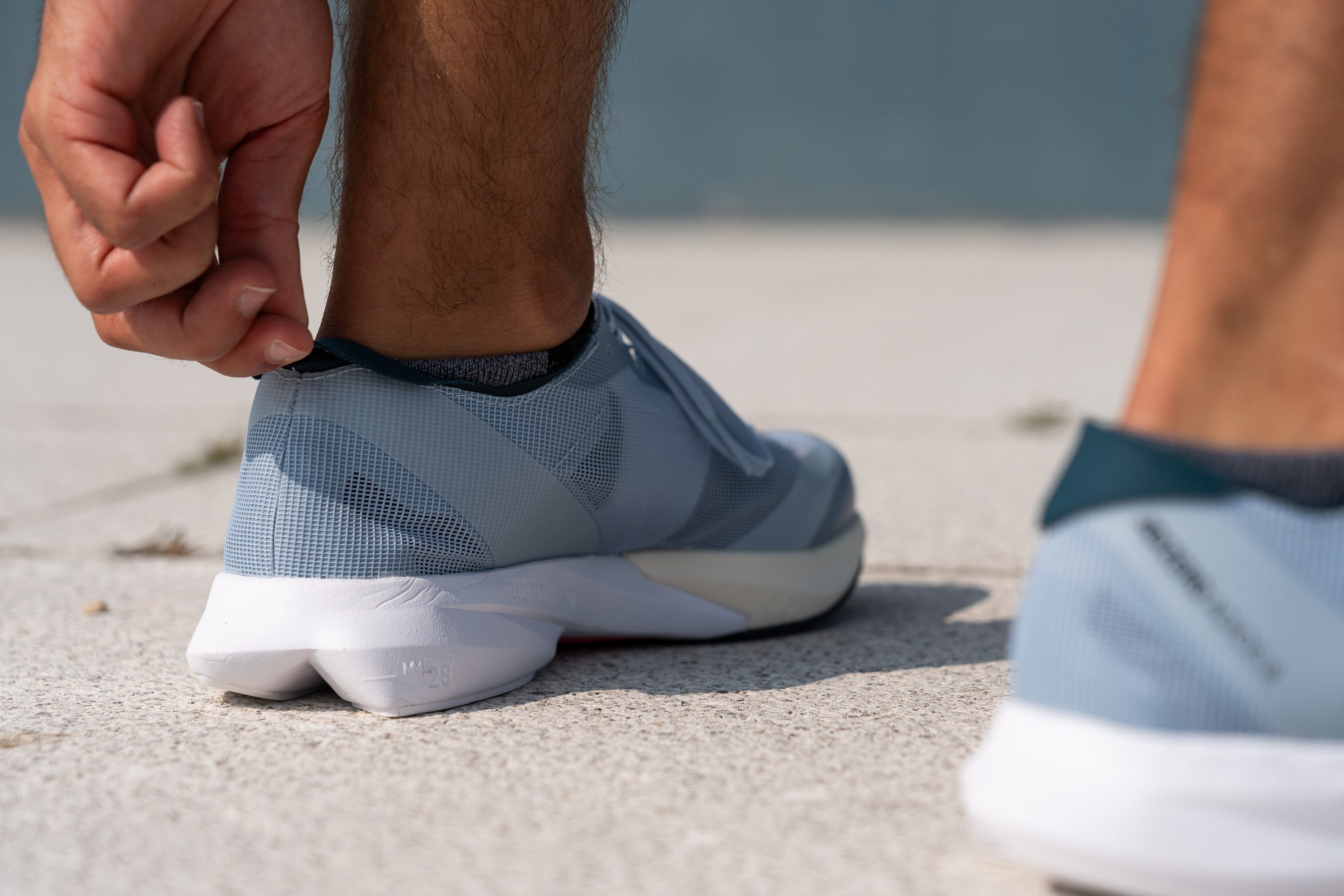
| Adizero Adios 8 | Pull tab |

